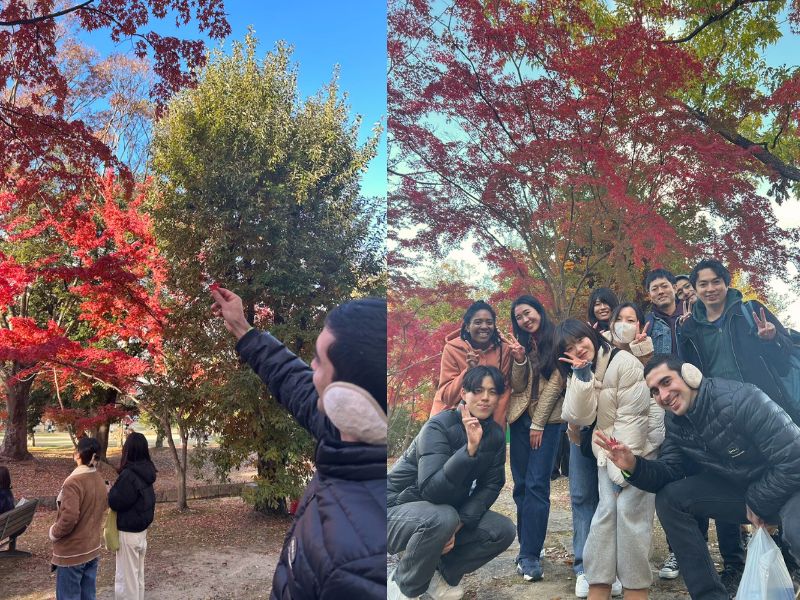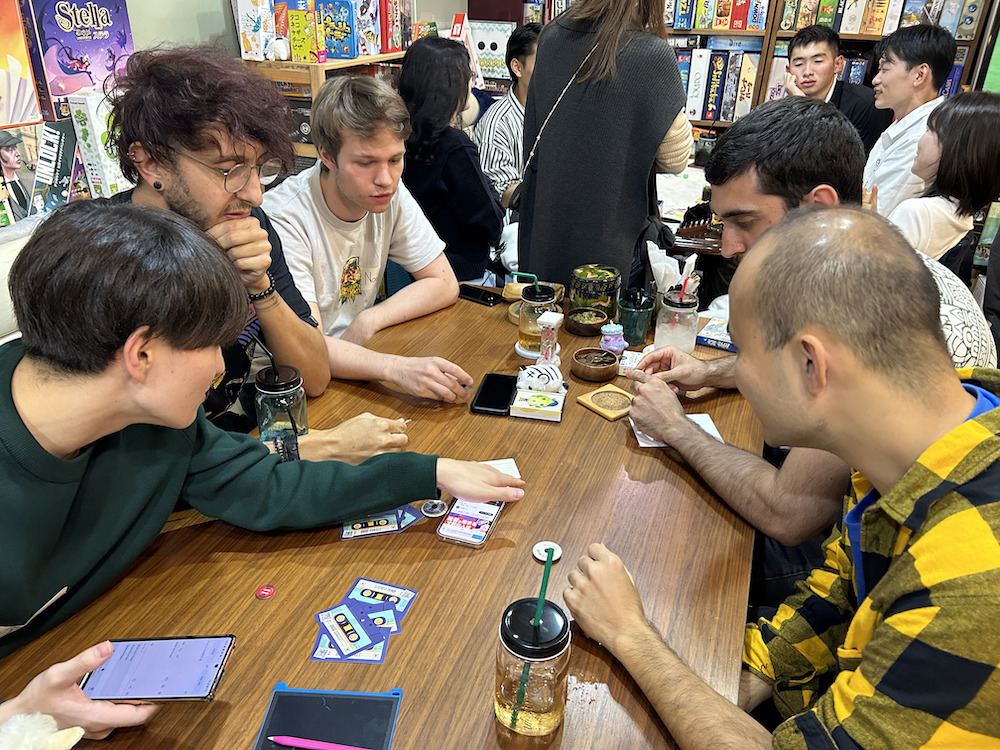Are you moving to Japan soon? As you embark on your journey in this captivating country, choosing the perfect place to call home is crucial.
From traditional guest houses to modern apartments and innovative shared housing communities, Japan offers a diverse array of living spaces to suit every lifestyle.
For foreigners seeking accommodation in Japan, navigating through this plethora of options can be both exciting and overwhelming. Whether you’re relocating for work, study, or adventure, finding the right housing solution is essential for a comfortable and enriching experience.
In this blog, we’ll simplify the process for you by providing a comprehensive comparison of housing options available in Japan. From Tokyo apartments for rent to shared housing communities, we’ll explore the features, benefits, and suitability of each option. Plus, we’ll shine a spotlight on why Borderless House stands out as an excellent choice for foreigners looking to settle in Japan. So whether you’re a student, a professional, or an adventurer, let’s find your ideal Japanese home together!
Exploring Traditional Housing Options in Japan
Apartments アパート
Japanese apartments, known as “apāto,” are a popular housing choice for both locals and foreigners alike. These compact living spaces are characterized by their efficient use of space and convenient location within urban centers.
Typically found in high-rise buildings, Japanese apartments often feature modern amenities such as built-in kitchen units, compact bathrooms, and sometimes even communal facilities like gyms or rooftop gardens.

Pros:
● Convenient urban locations, often close to public transportation and amenities.
● Modern amenities and efficient use of space.
● Variety of sizes and layouts to suit different needs and budgets.
Cons:
● Limited space, especially in smaller units.
● Higher rental costs in prime locations.
● Potential noise from neighboring units or busy streets.
Mansion (Manshon)
In Japan, the term “mansion” refers to a higher-end type of apartment or condominium. Mansions are typically larger and more luxurious than standard apartments, offering additional amenities such as concierge services, security systems, and sometimes even private gardens or communal lounges. They are often favored by expatriates and affluent locals seeking upscale living experiences.

Pros:
● Spacious and luxurious living spaces.
● Premium amenities and services.
● Prestigious addresses in desirable neighborhoods.
Cons:
● Higher rental or purchase costs compared to standard apartments.
● Limited availability in certain areas.
● Maintenance fees and additional expenses may be higher.
Share Houses
Share houses have gained popularity in recent years as an alternative housing option for both locals and foreigners. These communal living spaces typically consist of private bedrooms combined with shared common areas such as kitchens, bathrooms, and living rooms. Share houses offer a balance between affordability, community living, and convenience.

Pros:
● Affordability, with lower rental costs compared to apartments or mansions.
● Opportunities for social interaction and cultural exchange.
● Flexibility in lease terms and room configurations.
Cons:
● Limited privacy compared to living in a standalone apartment.
● Potential conflicts with housemates.
● Shared responsibilities for cleaning and maintenance.
Choosing the Right Housing Option

Now that you’re familiar with the traditional housing options in Japan, how do you decide which one is the best fit for you? Here’s a guide to help you make an informed decision:
Consider Your Budget
Start by evaluating your budget and determining how much you can afford to spend on housing expenses. Apartments and mansions tend to be more expensive than share houses, so it’s essential to choose an option that aligns with your financial situation.
Prioritize Location
Think about your daily commute, access to amenities, and proximity to your workplace or school. Apartments and mansions in central Tokyo may offer convenience but come at a higher cost, while share houses located in suburban areas may provide a more affordable alternative with a longer commute.
Assess Your Lifestyle Needs
Reflect on your lifestyle preferences and requirements. Are you looking for a private space where you can unwind after a long day, or do you thrive in a social environment with opportunities for interaction? Consider factors such as privacy, socializing, and access to facilities when choosing between apartments, mansions, or share houses.
Evaluate Amenities and Services
Take stock of the amenities and services offered by each housing option. Apartments and mansions may come with facilities like gyms, lounges, or security services, while share houses often emphasize communal spaces and social activities. Choose the option that best meets your needs and enhances your living experience in Japan.
Seek Recommendations and Reviews
Don’t hesitate to reach out to fellow expatriates, online forums, or housing agencies like GaijinPot for recommendations and insights. Hearing firsthand experiences from others who have lived in different types of housing can provide valuable perspectives and help you make a well-informed decision.
Home Away from Home: Embracing Borderless House Living
Borderless House offers a unique approach to housing in Japan, focusing on fostering a vibrant multicultural community. With a mission to create a home away from home for residents from around the world, Borderless House redefines the traditional concept of shared living. Their properties are strategically located in prime urban areas, offering convenience and accessibility to residents while ensuring a supportive and inclusive environment.
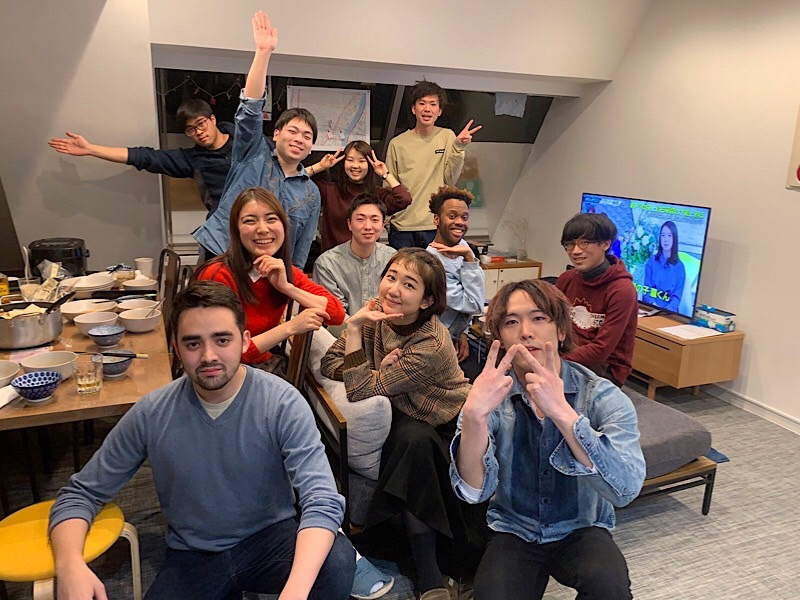
International Community
Borderless House prides itself on its diverse mix of residents hailing from various countries. This creates a dynamic environment ripe for cultural exchange and language practice, enriching the living experience for everyone involved.
With 50% of tenants being Japanese locals, residents have the unique opportunity to live and learn with Japanese housemates, practicing language skills and gaining deeper insights into cultural traditions.
Convenient Locations
Situated near public transportation hubs and urban centers, Borderless House properties offer unparalleled convenience. Residents enjoy easy access to amenities and services, making everyday life in Japan hassle-free and enjoyable.
Flexible Contracts
Borderless House offers flexible contracts with a minimum one-month stay requirement. Moving in and out is a breeze, as tenants only need to provide a 30-day move-out notice, allowing for seamless transitions as your circumstances change.
Fully Furnished
Say goodbye to the hassle of furnishing your new home. Borderless House offers fully furnished living spaces equipped with everything you need for comfortable living, eliminating the need for additional furniture or appliances.
Supportive Environment
Borderless House ensures that residents feel supported and cared for during their stay. Regularly organized events and activities foster a sense of community, making it easy to forge friendships and create lasting memories.
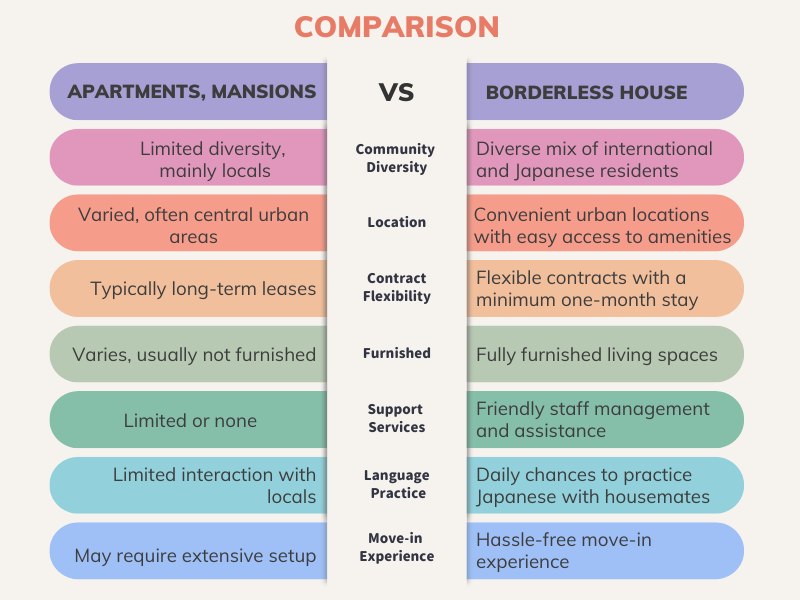
By carefully considering these factors and weighing the pros and cons of each housing option, you’ll be well-equipped to choose the right accommodation that suits your lifestyle, budget, and preferences during your stay in Japan.
In summary
When it comes to finding the perfect housing option in Japan, it’s essential to consider factors such as community diversity, location convenience, contract flexibility, furnished living spaces, support services, cultural exchange opportunities, language practice, and move-in experience. While traditional housing options offer their own advantages, Borderless House emerges as a standout choice for those seeking a unique and enriching living experience in Japan.
So why settle for ordinary when you can embrace extraordinary? Consider Borderless House for a memorable and immersive living experience in Japan.
Take the first step towards your Japanese adventure today. Contact Borderless House for more information or to book your stay. Your journey to multicultural living awaits!


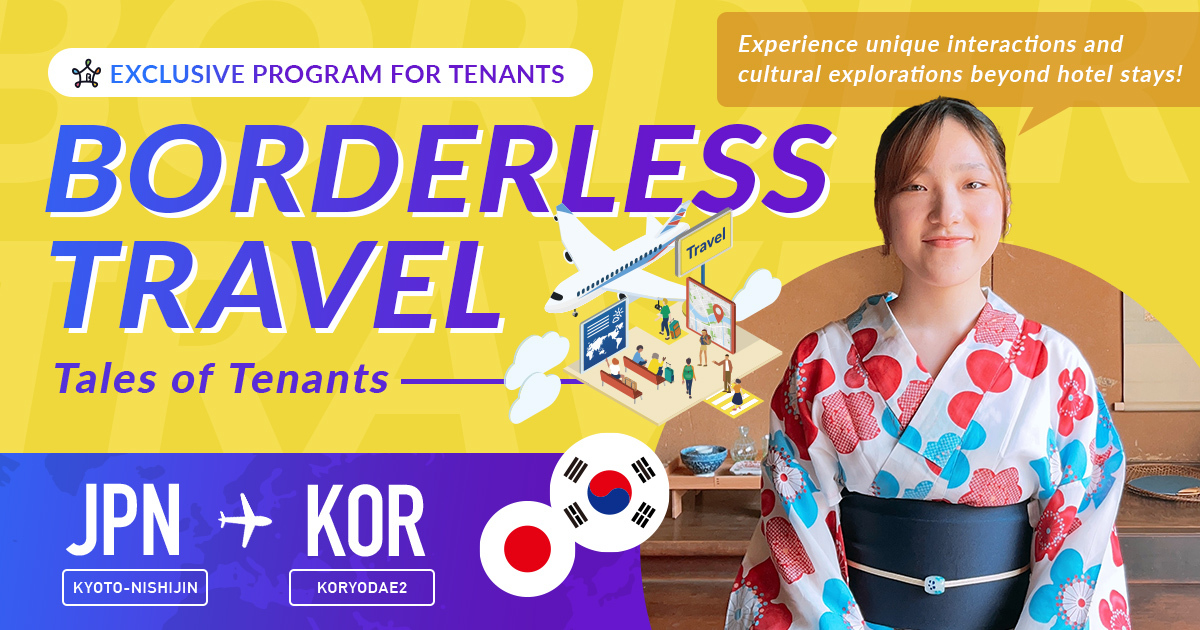
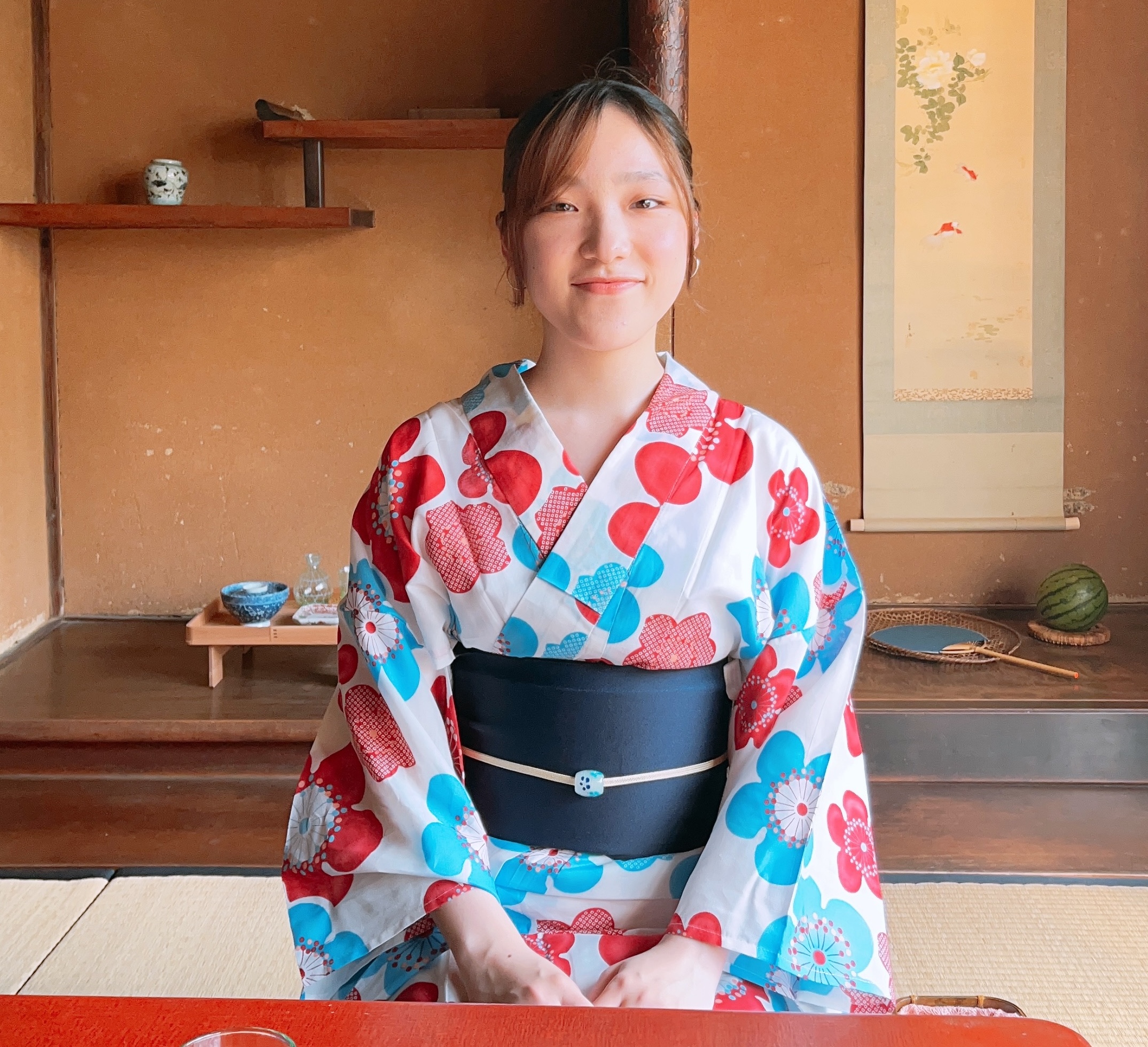 Yuzuki’s time at Nishijin House brought about a significant shift in her views on English and international interactions. She explained that her decision to move there stemmed from a desire to conquer her fear of English and engage with people from different countries.
Yuzuki’s time at Nishijin House brought about a significant shift in her views on English and international interactions. She explained that her decision to move there stemmed from a desire to conquer her fear of English and engage with people from different countries.


 Yuzuki: When I got to Koryodaes House, I was greeted by Robin, the staff member I had been communicating with by email. Meeting him in person really helped me settle in. He showed me around and shared some local tips and places to visit.
Yuzuki: When I got to Koryodaes House, I was greeted by Robin, the staff member I had been communicating with by email. Meeting him in person really helped me settle in. He showed me around and shared some local tips and places to visit.
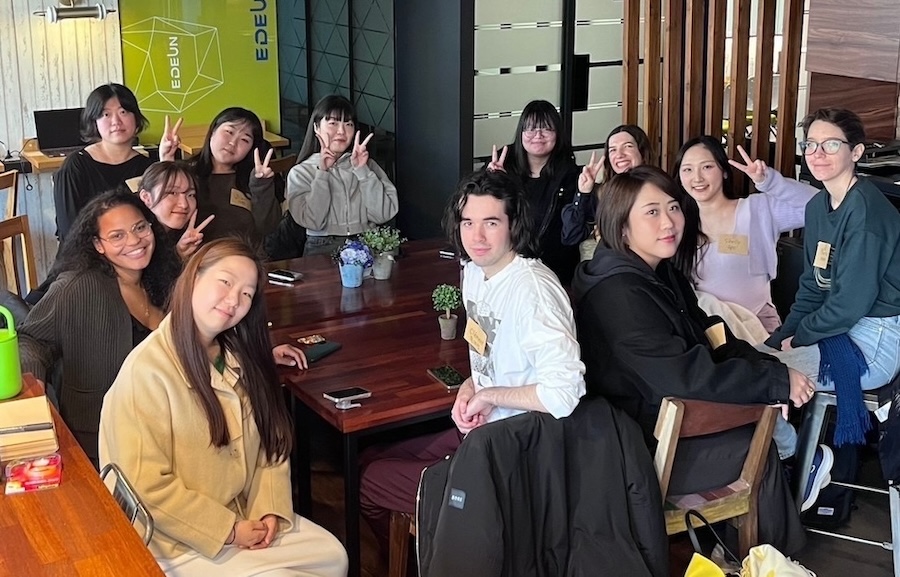



















 在淡水情人橋附近的海水浴場,是一個適合坐在沙灘上凝望海洋,感受悠閒寧靜的海岸。這片海灘並不常被大眾踏足,是個相對寧靜的秘境,觀察著大小朋友與寵物慢遊的畫面,彷彿有種治癒的感覺。當天室友們帶著野餐墊,一起坐在沙灘上看海聊天~英國室友事後與我們分享當時她的內心感到很療癒,因為她的家鄉都沒辦法看到什麼海,所以很開心能和大家一起欣賞台灣的海!
在淡水情人橋附近的海水浴場,是一個適合坐在沙灘上凝望海洋,感受悠閒寧靜的海岸。這片海灘並不常被大眾踏足,是個相對寧靜的秘境,觀察著大小朋友與寵物慢遊的畫面,彷彿有種治癒的感覺。當天室友們帶著野餐墊,一起坐在沙灘上看海聊天~英國室友事後與我們分享當時她的內心感到很療癒,因為她的家鄉都沒辦法看到什麼海,所以很開心能和大家一起欣賞台灣的海! 沿著北海岸繼續前行,會抵達一個叫做「老梅」的社區。這裡擁有台灣唯一的綠石槽海岸,特別之處在於四月份東北季風逐漸停息,石槽便會被一片翠綠的海藻所覆蓋,形成令人驚嘆的「綠石槽」海岸景觀。
沿著北海岸繼續前行,會抵達一個叫做「老梅」的社區。這裡擁有台灣唯一的綠石槽海岸,特別之處在於四月份東北季風逐漸停息,石槽便會被一片翠綠的海藻所覆蓋,形成令人驚嘆的「綠石槽」海岸景觀。


 自2024年1月1日起,我們與Zipcar攜手合作,為
自2024年1月1日起,我們與Zipcar攜手合作,為
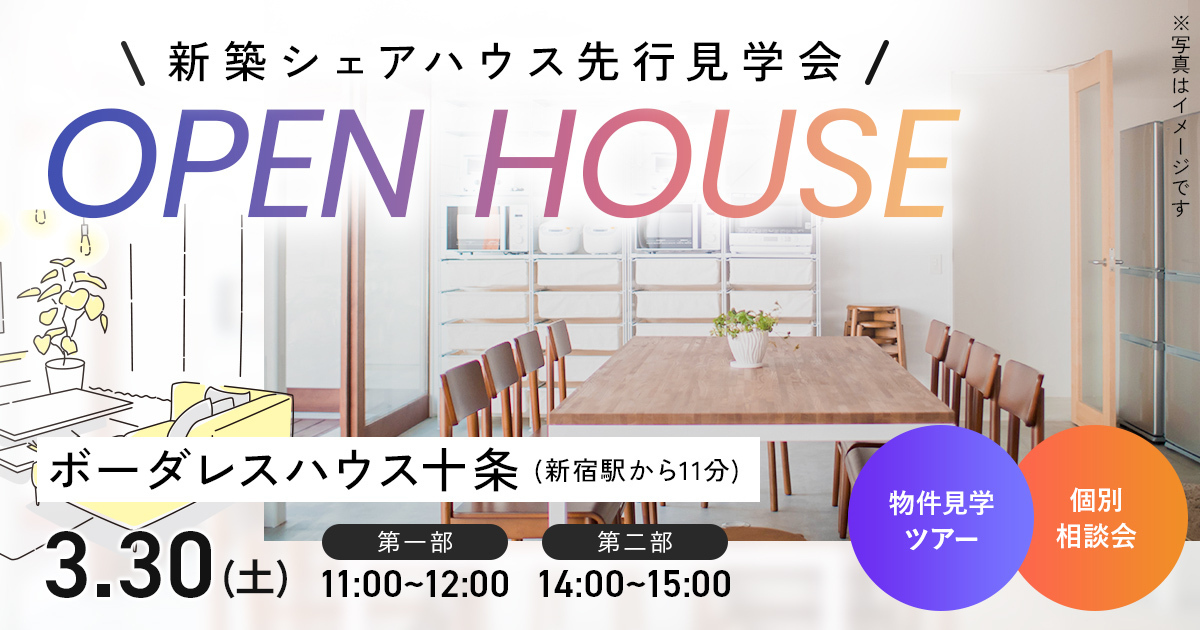
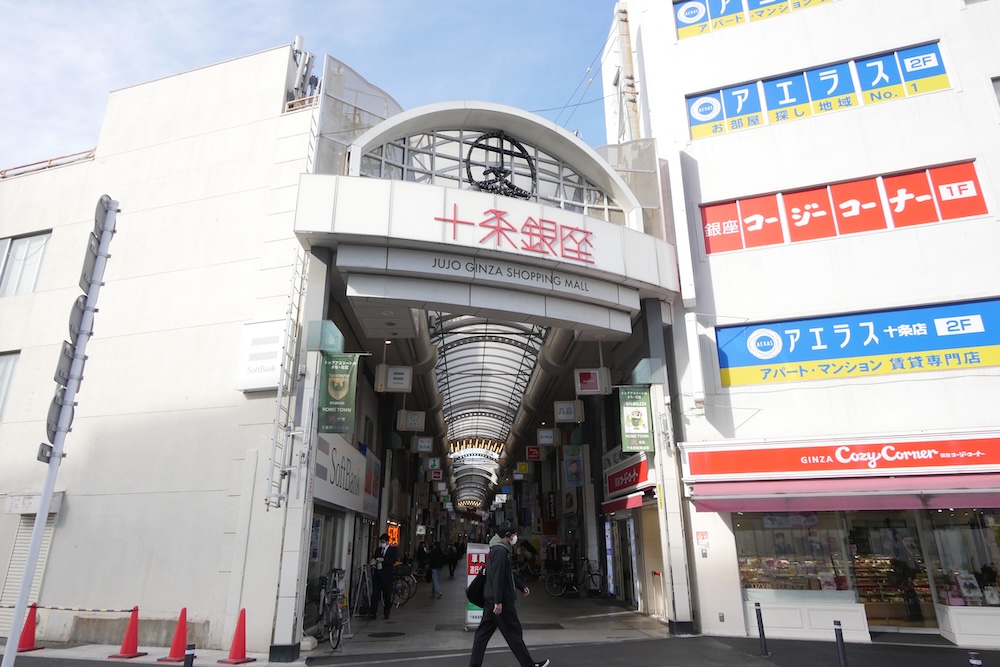 Jujo Ginza Shopping Street, with its 80-year legacy, is a bustling hub filled with supermarkets, fresh produce stands, essential shops, and eateries. It’s lively even on a weekday afternoon, packed with people enjoying the vibrant scene. The cheerful calls of the shopkeepers as you pass by can’t help but boost your spirits, making every visit feel like a little energy boost.
Jujo Ginza Shopping Street, with its 80-year legacy, is a bustling hub filled with supermarkets, fresh produce stands, essential shops, and eateries. It’s lively even on a weekday afternoon, packed with people enjoying the vibrant scene. The cheerful calls of the shopkeepers as you pass by can’t help but boost your spirits, making every visit feel like a little energy boost.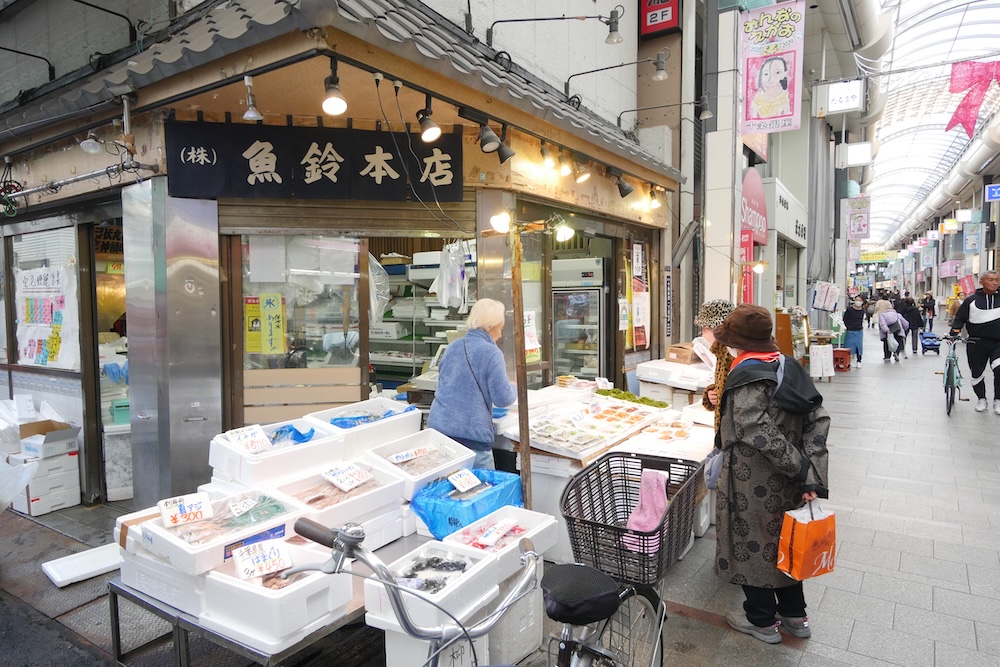
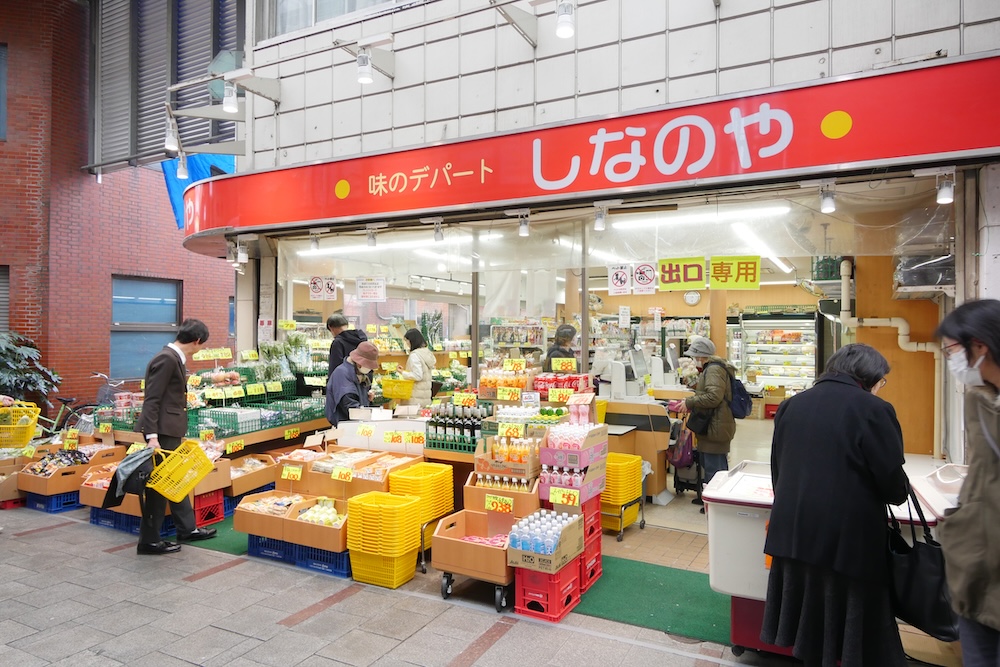
 ▲As of March 2024!
▲As of March 2024!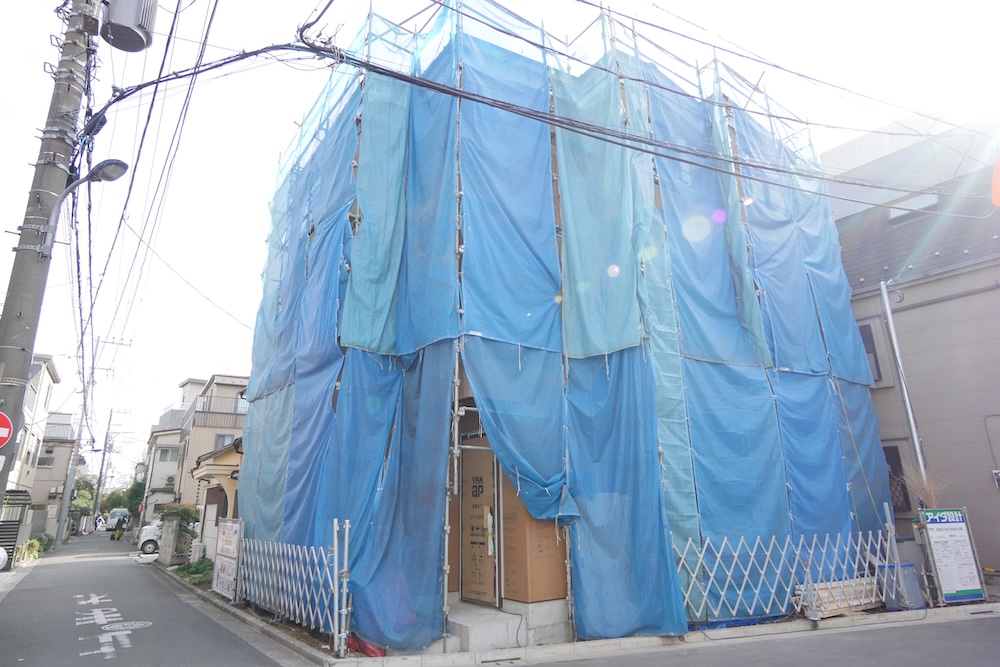 ▲Photo from the beginning of 2024
▲Photo from the beginning of 2024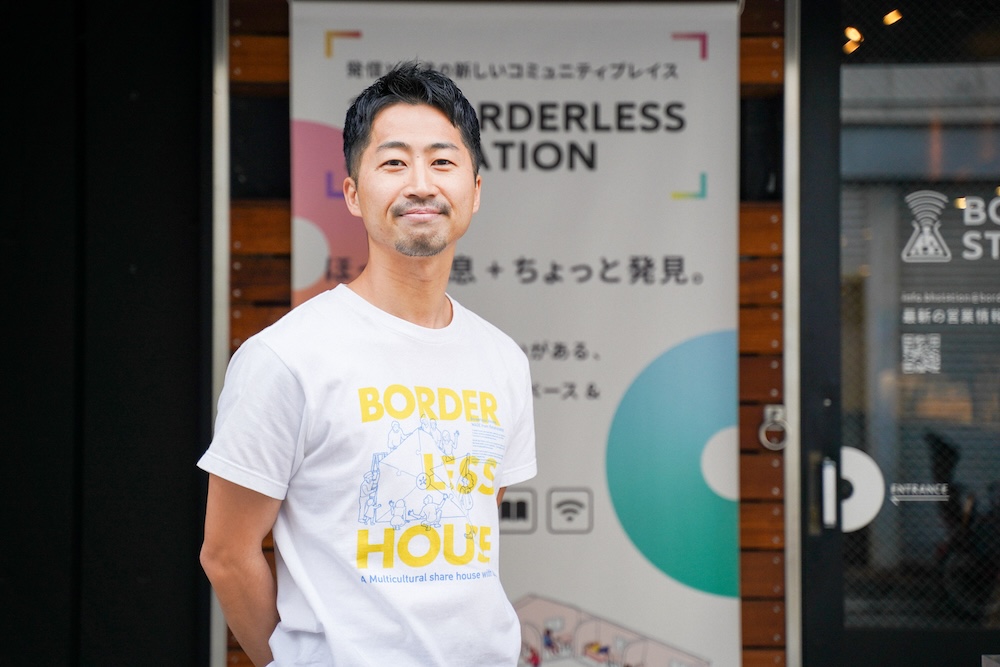 In designing Borderless House Jujo, we’ve paid special attention to crafting spaces where residents can easily relax and connect. From opting for a larger living room to installing plenty of washbasins, every choice was made with comfort and community in mind.
In designing Borderless House Jujo, we’ve paid special attention to crafting spaces where residents can easily relax and connect. From opting for a larger living room to installing plenty of washbasins, every choice was made with comfort and community in mind.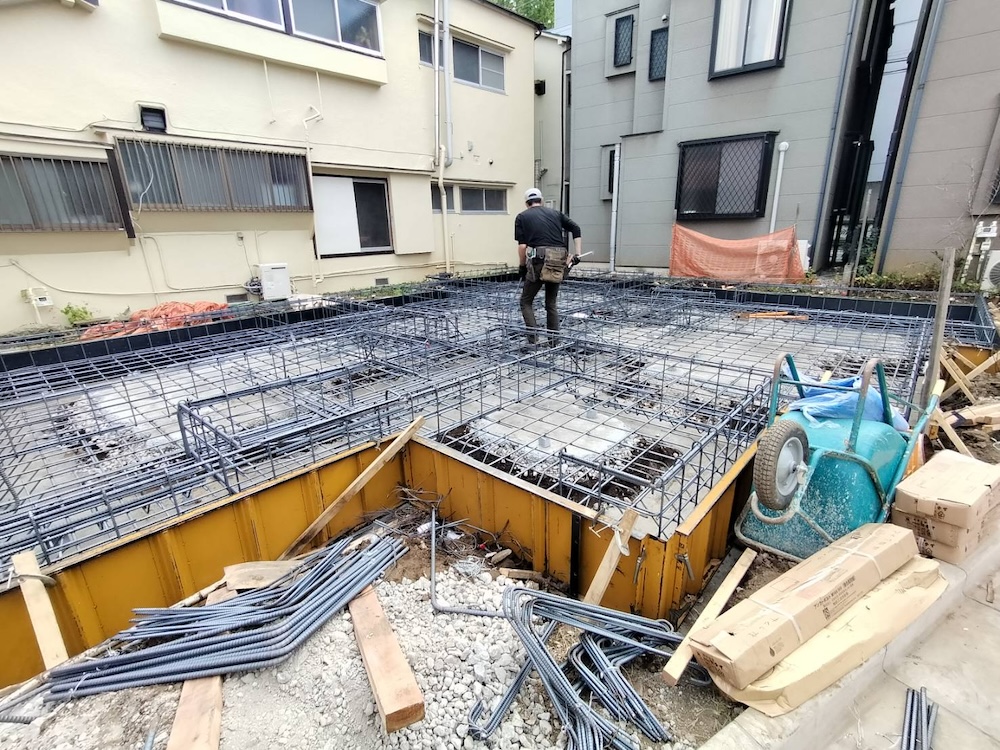 ▲November 2023, when the scaffolding had just been assembled
▲November 2023, when the scaffolding had just been assembled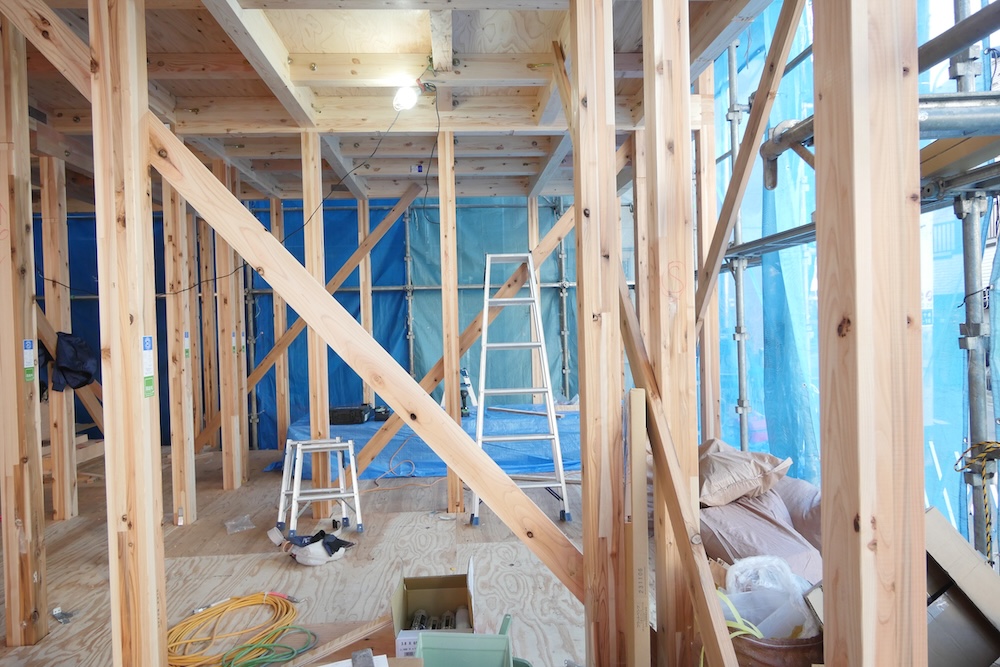 ▲December 2023, there were no walls yet, but it was gradually taking the shape of a house
▲December 2023, there were no walls yet, but it was gradually taking the shape of a house ▲Construction was carefully progressed towards the opening
▲Construction was carefully progressed towards the opening
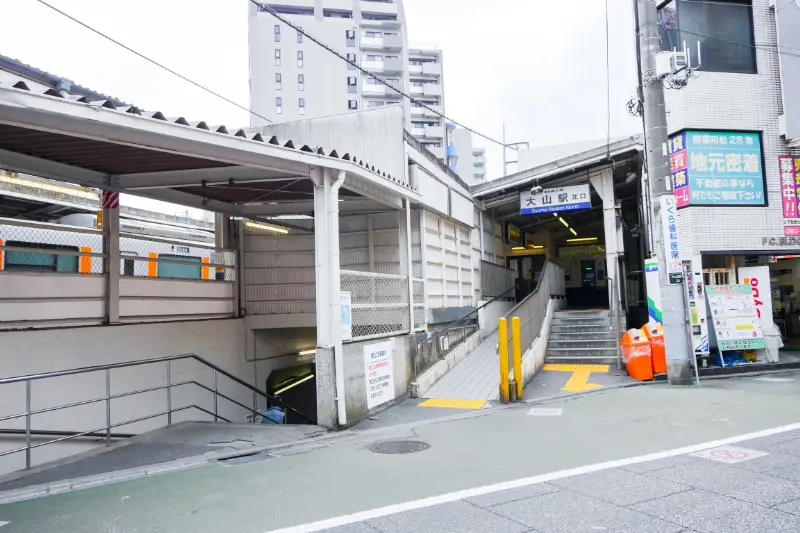 The entrance to the house is on the second floor.
The entrance to the house is on the second floor.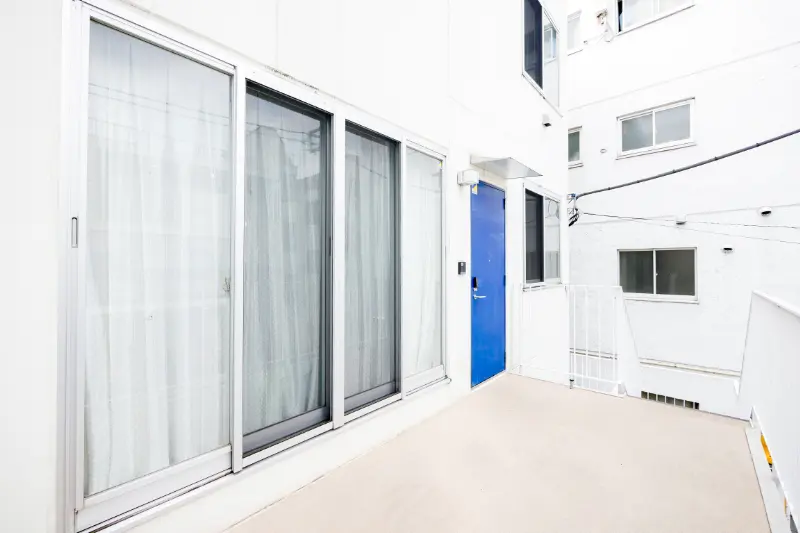


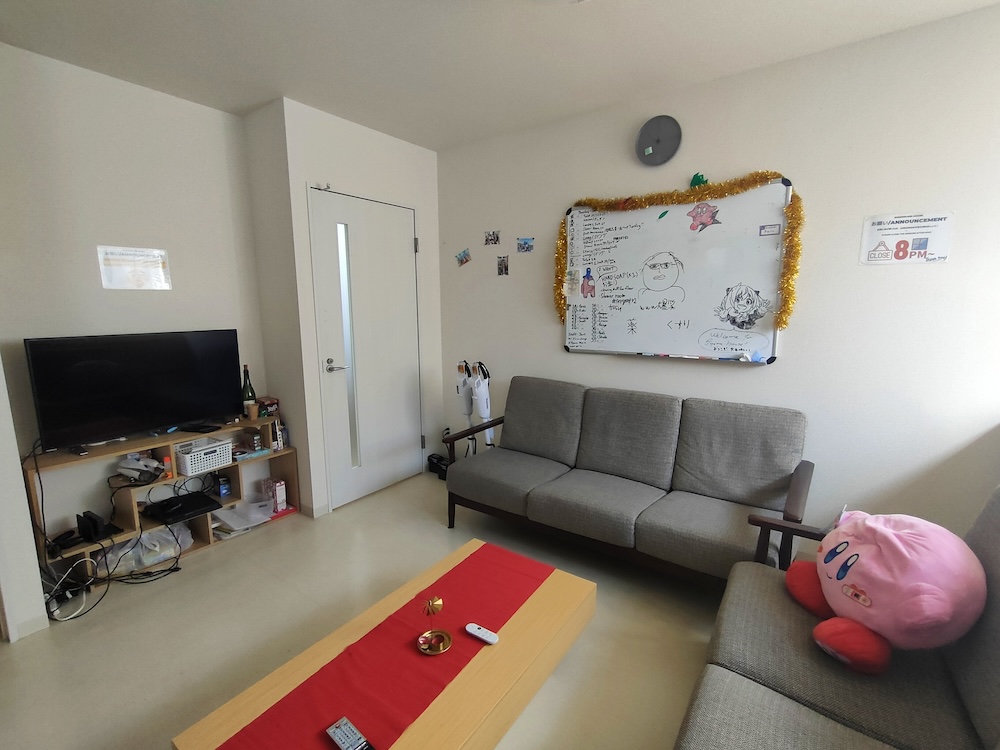
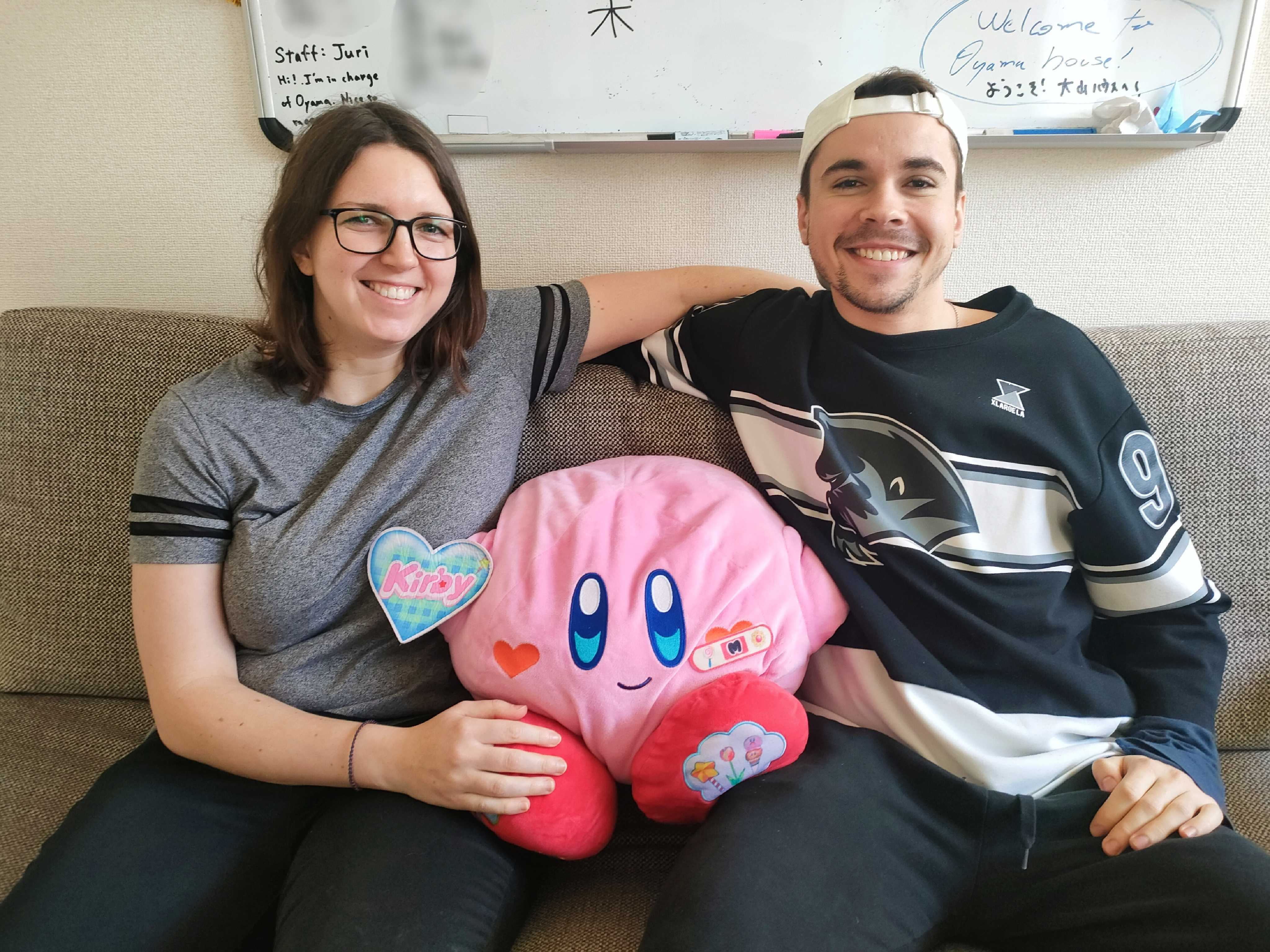
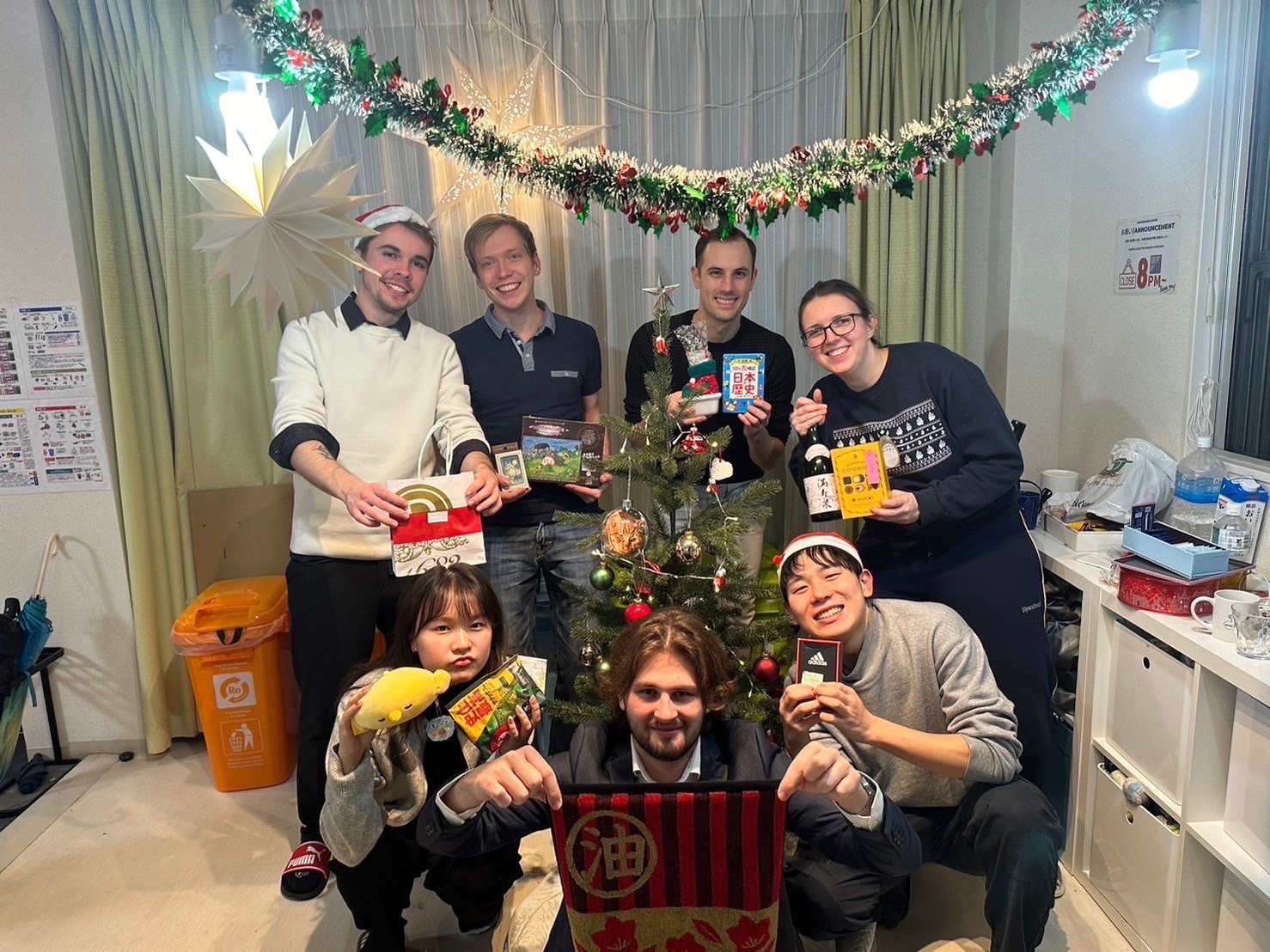
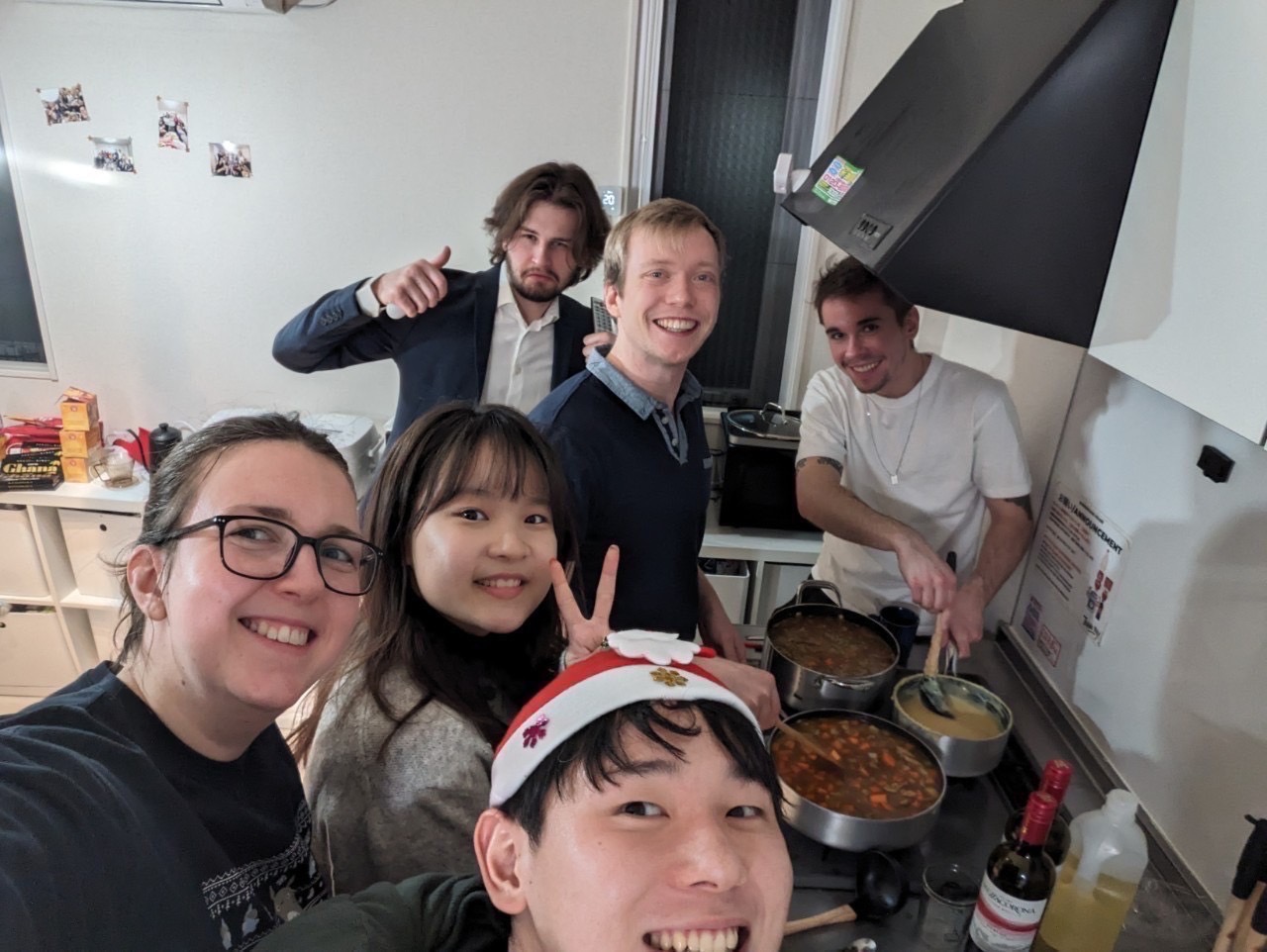 Denise, who moved in last October and is now in her fourth month at the house, particularly remembers the time spent during the Christmas party.
Denise, who moved in last October and is now in her fourth month at the house, particularly remembers the time spent during the Christmas party.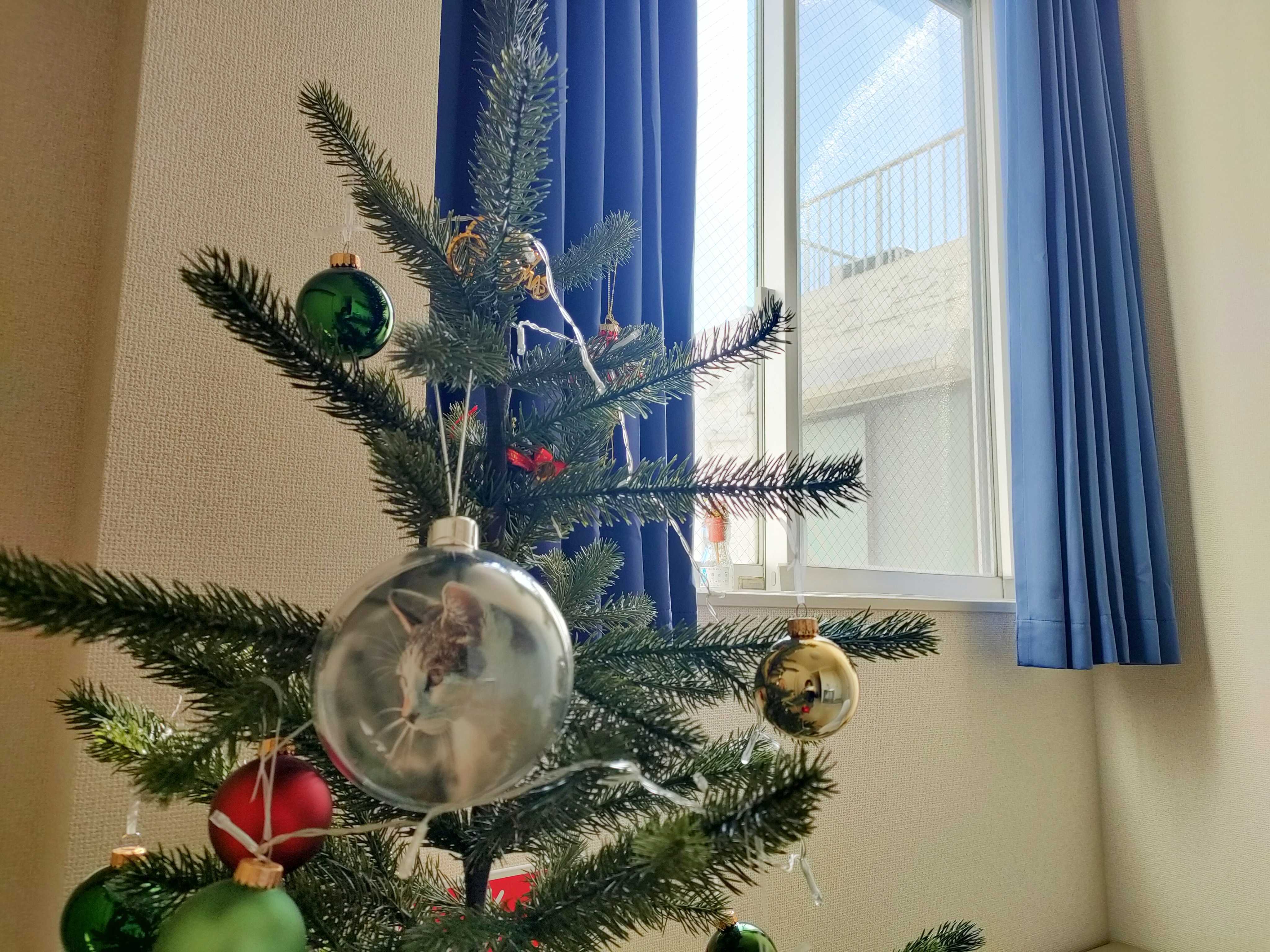

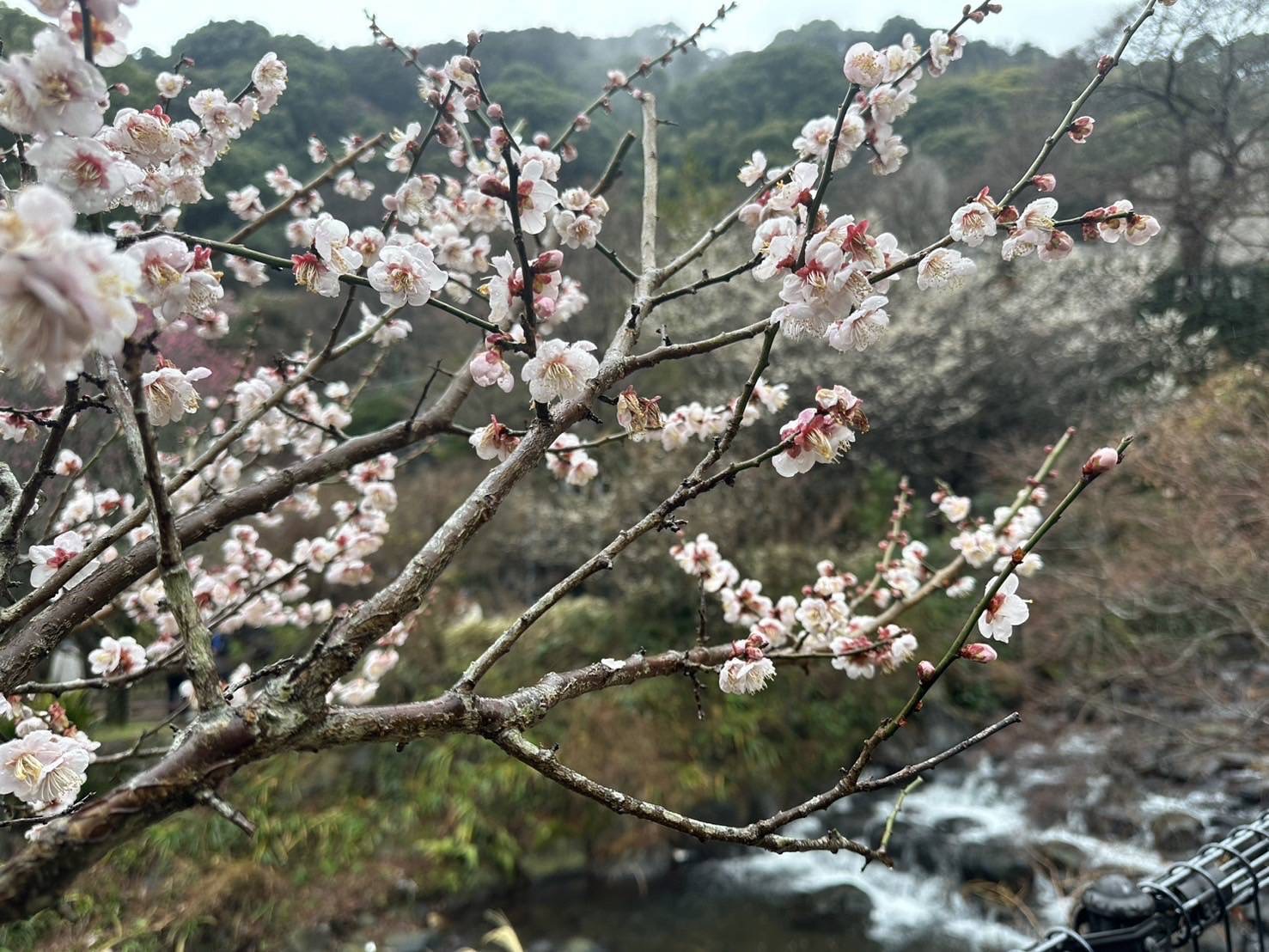

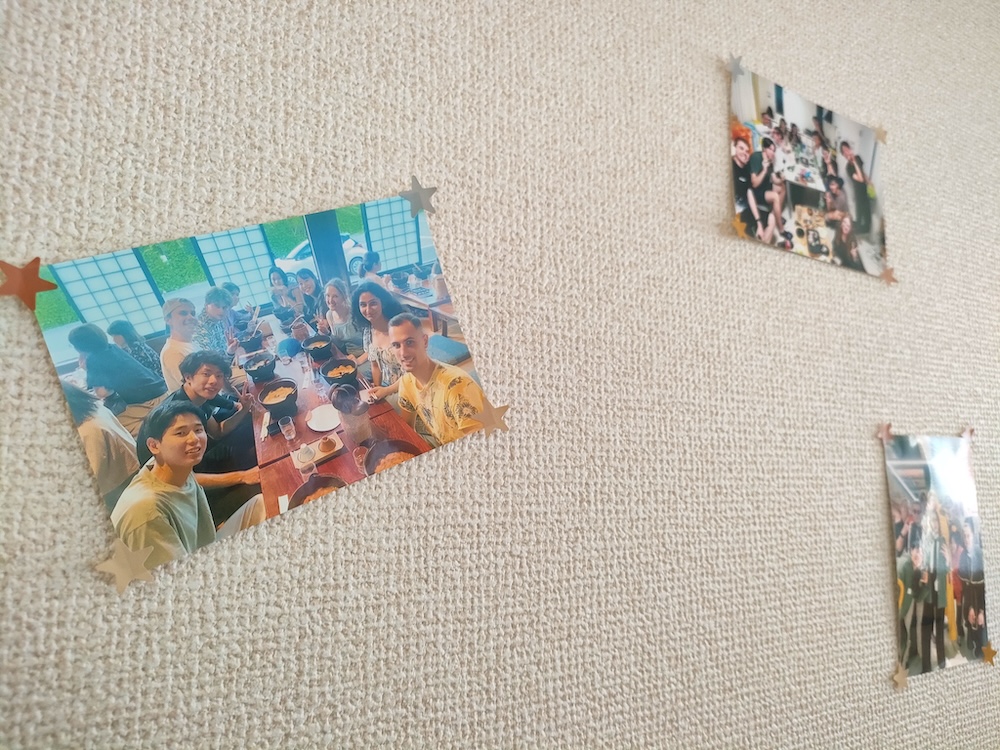
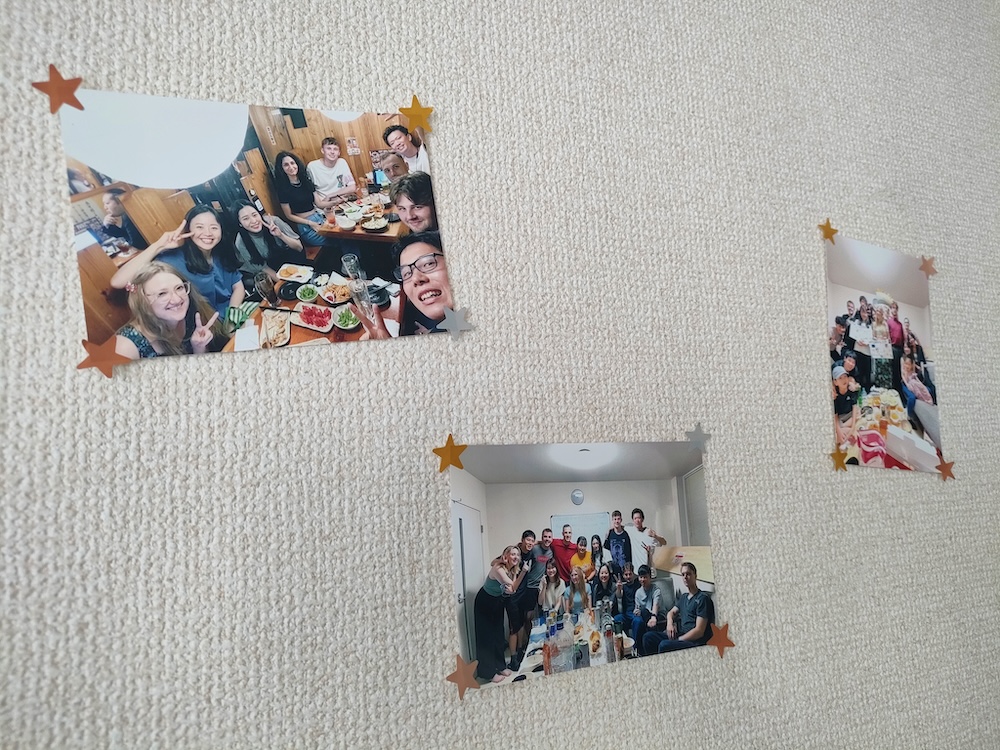 Another wonderful aspect of Ikebukuro Oyama House is the tradition of always celebrating each housemate’s birthday!
Another wonderful aspect of Ikebukuro Oyama House is the tradition of always celebrating each housemate’s birthday!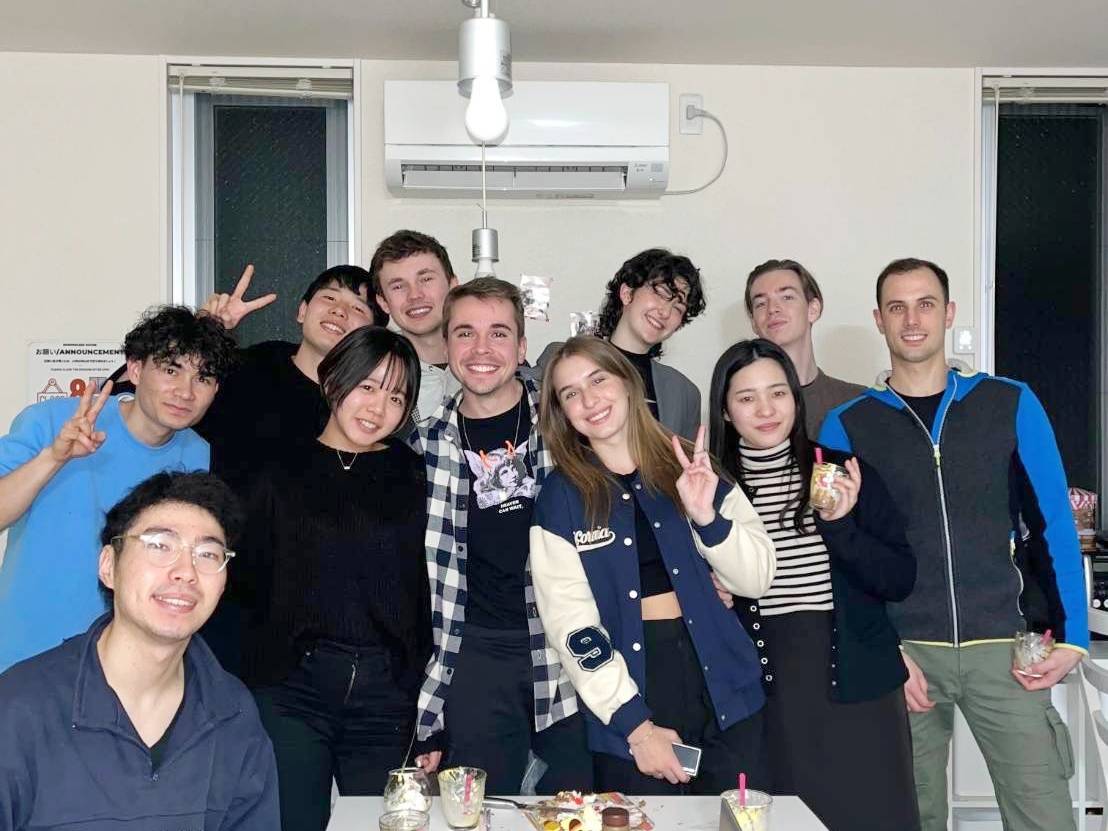
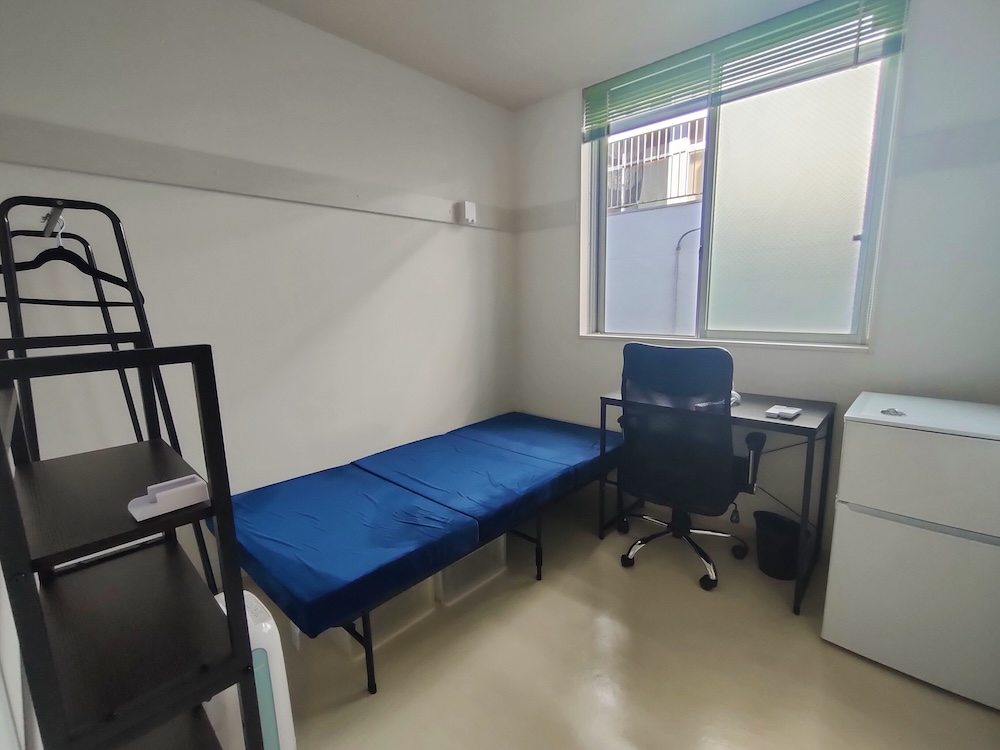
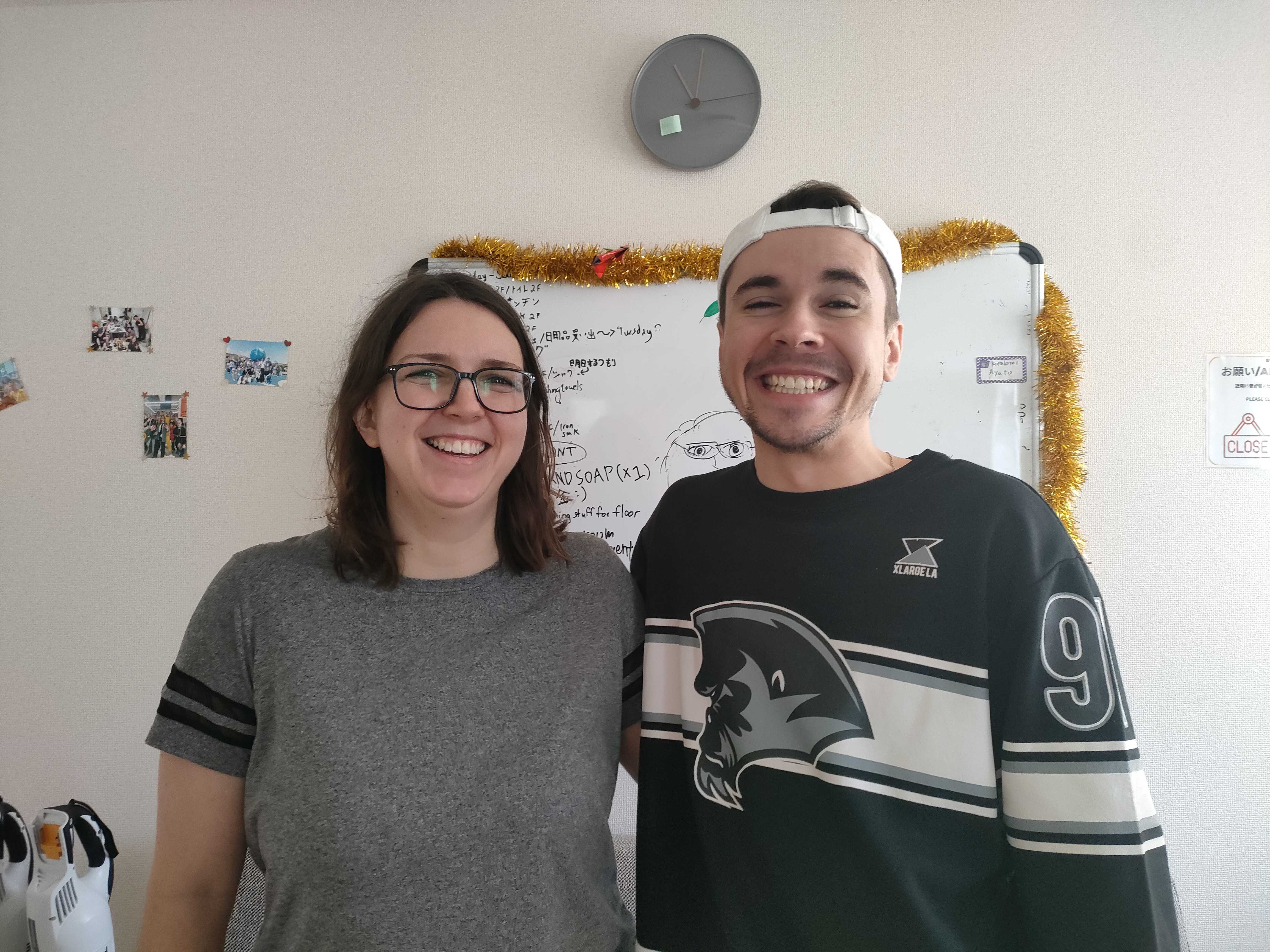
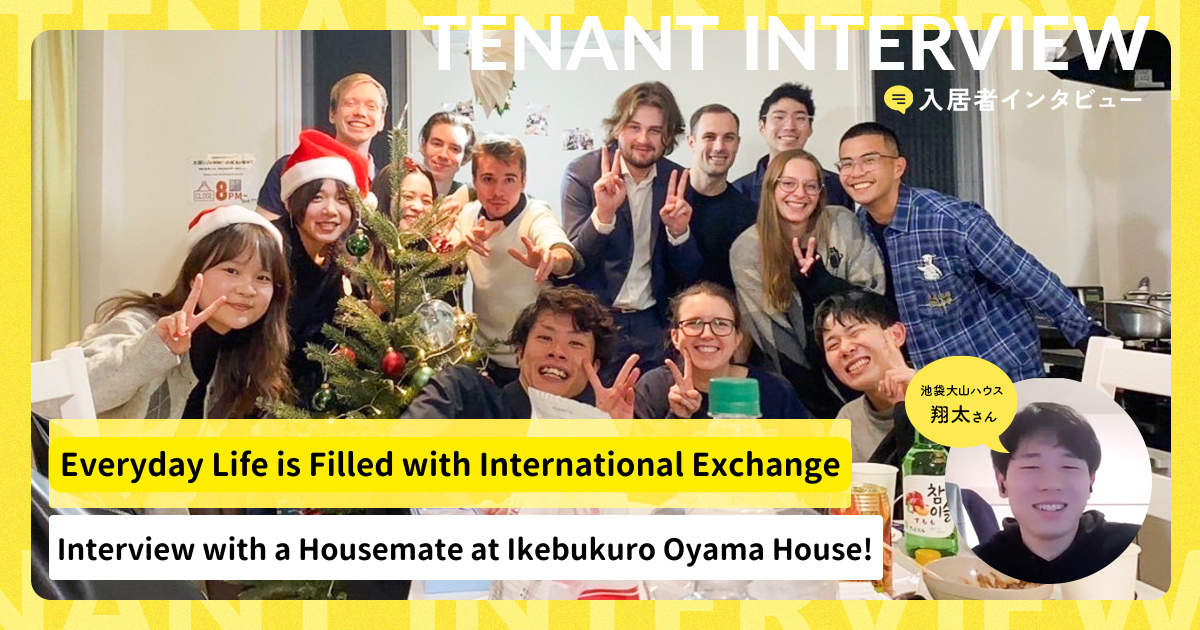

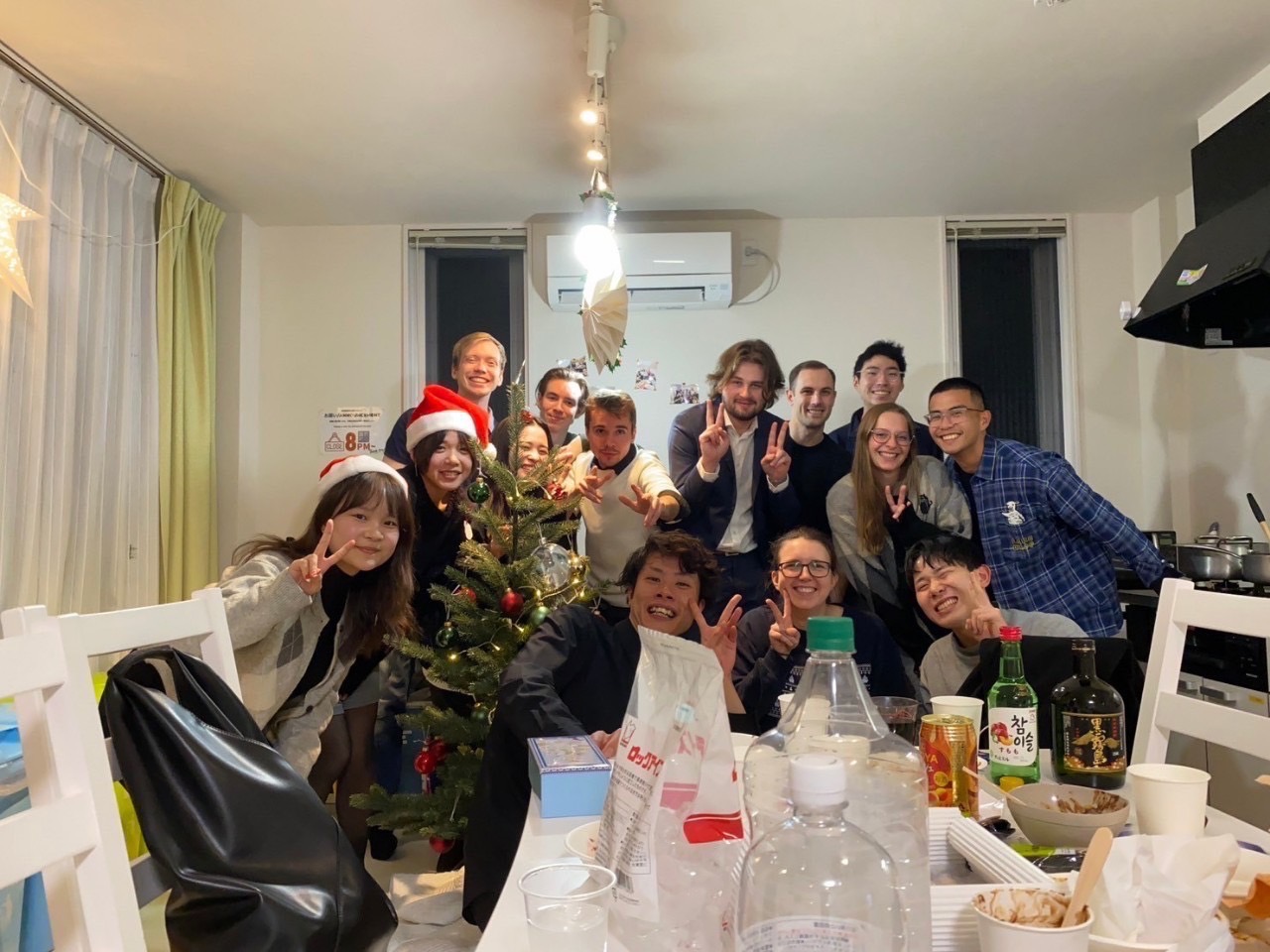
 ▲Becoming Best Friends with Mats After a Hospital Visit
▲Becoming Best Friends with Mats After a Hospital Visit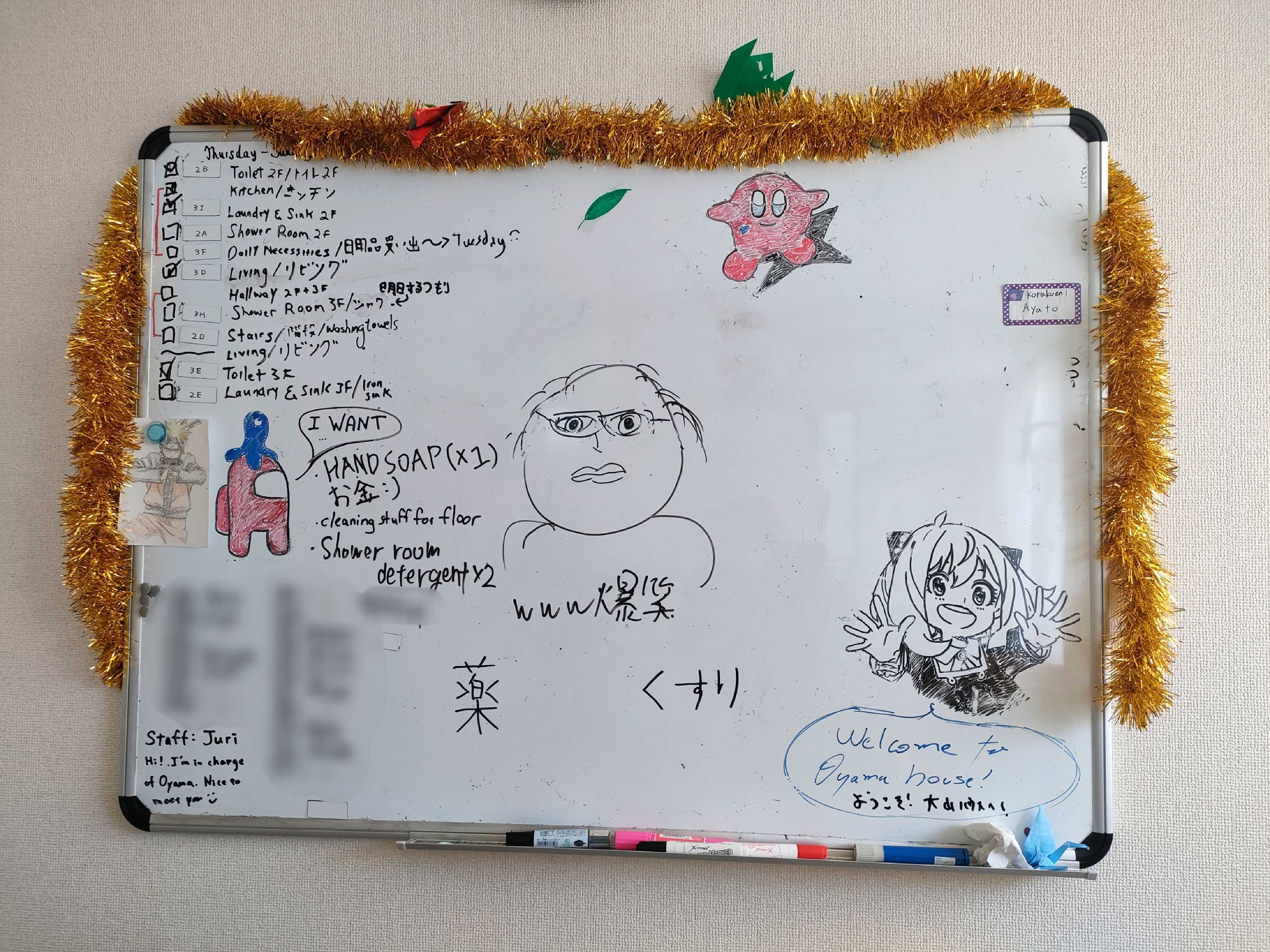 ▲Rotating Cleaning Duties and Passionate Discussions
▲Rotating Cleaning Duties and Passionate Discussions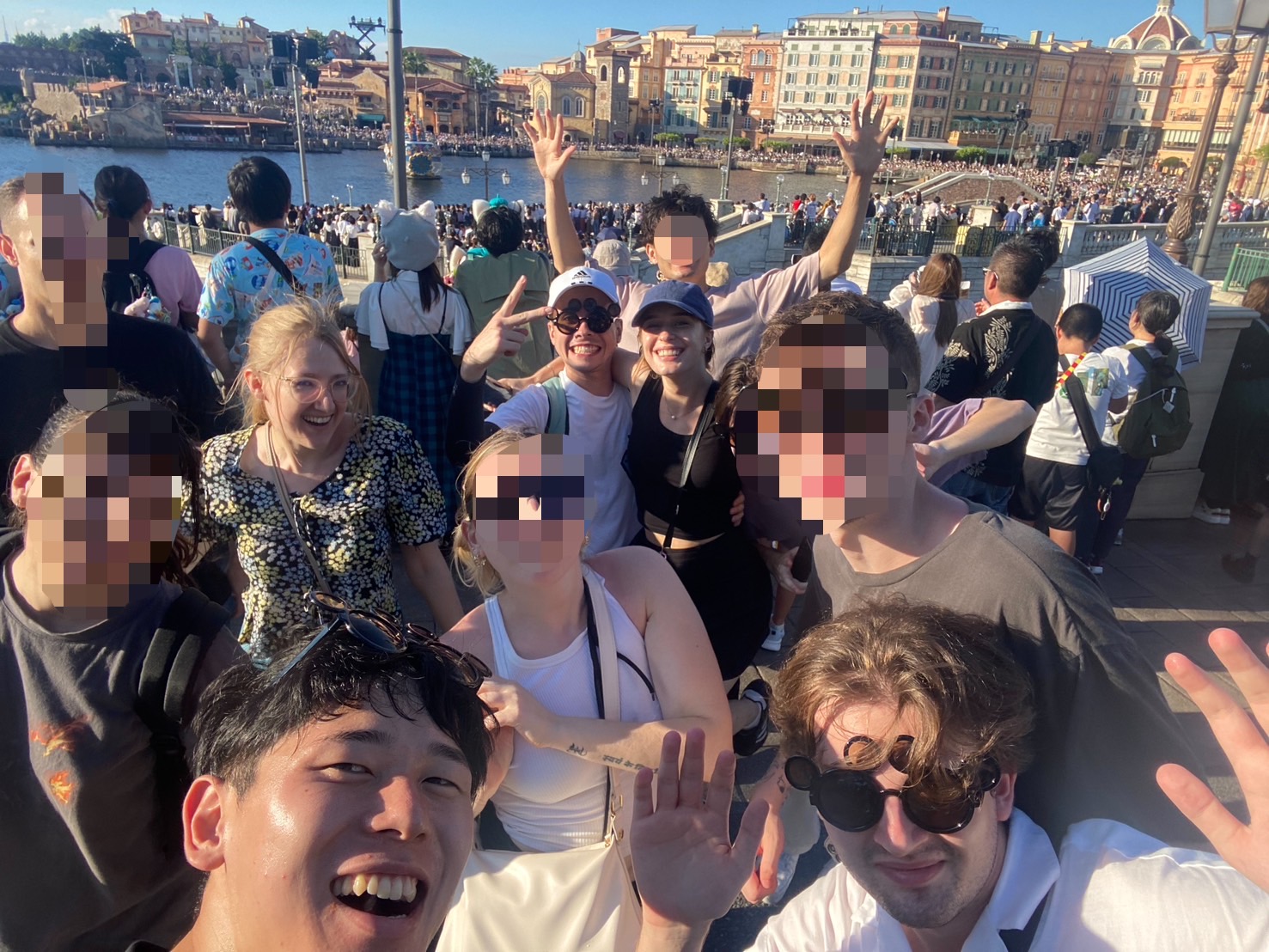 “There was this one time someone started playing music, and suddenly we were all dancing in the queue (laughs).”
“There was this one time someone started playing music, and suddenly we were all dancing in the queue (laughs).”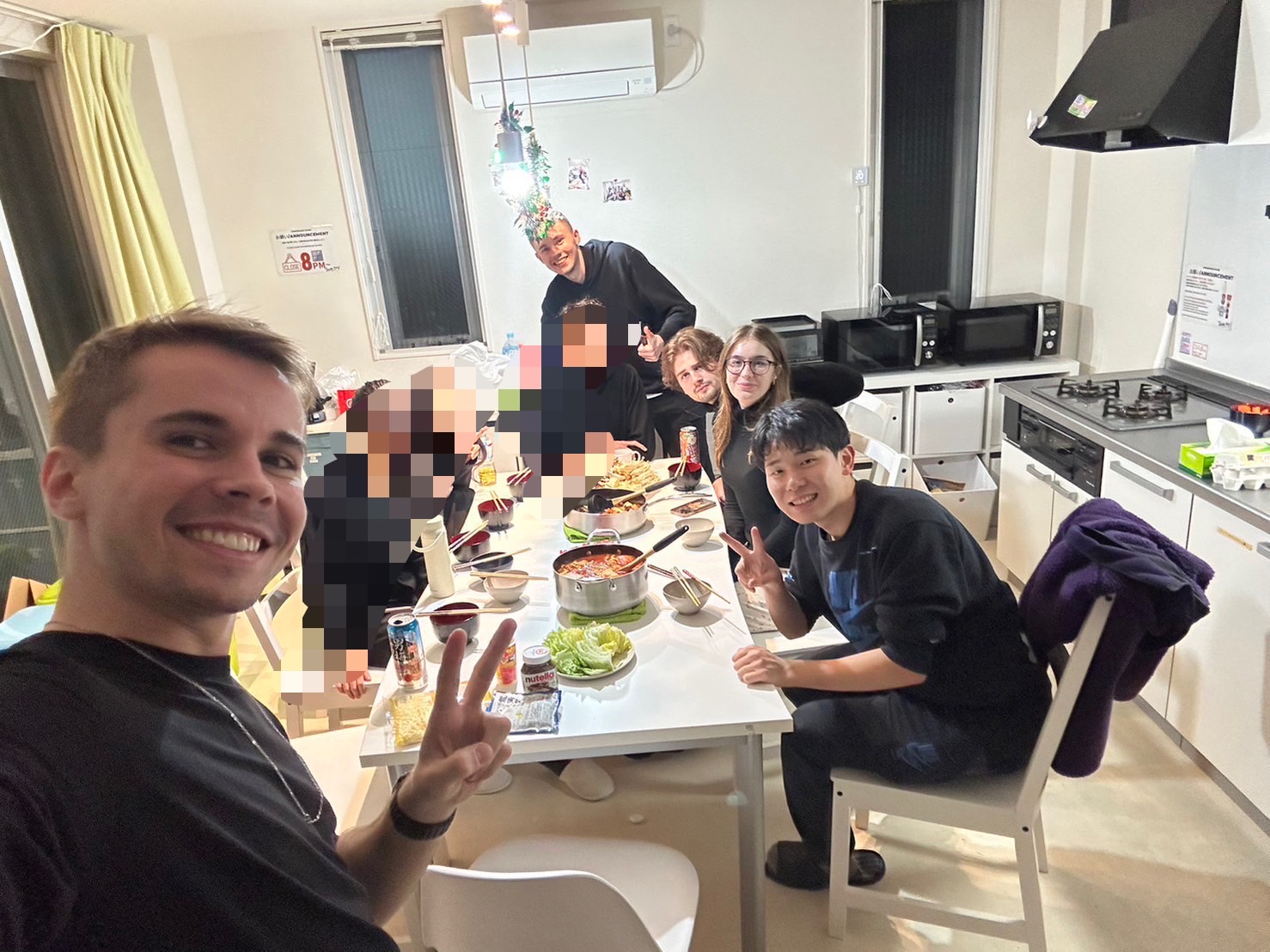
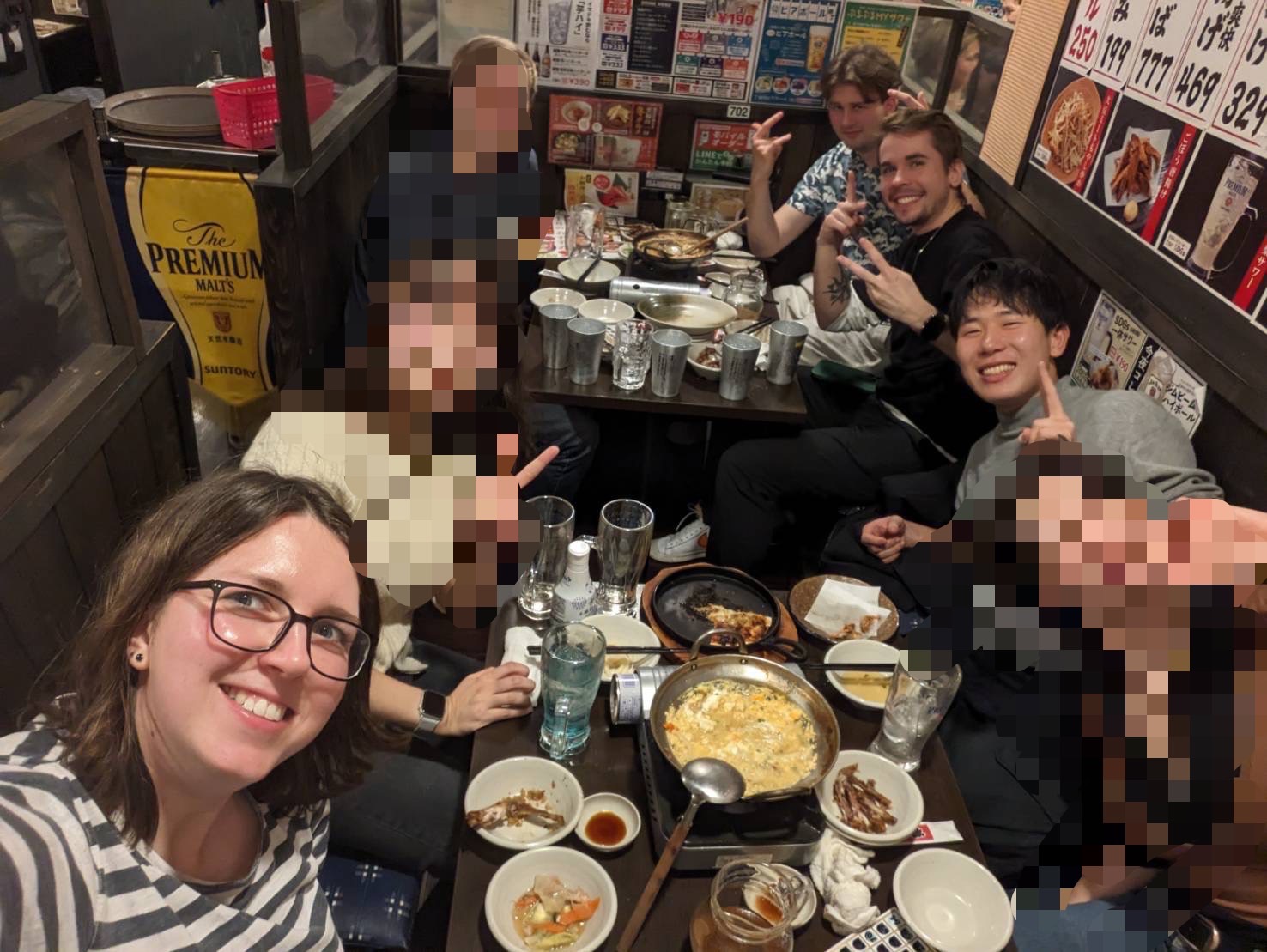

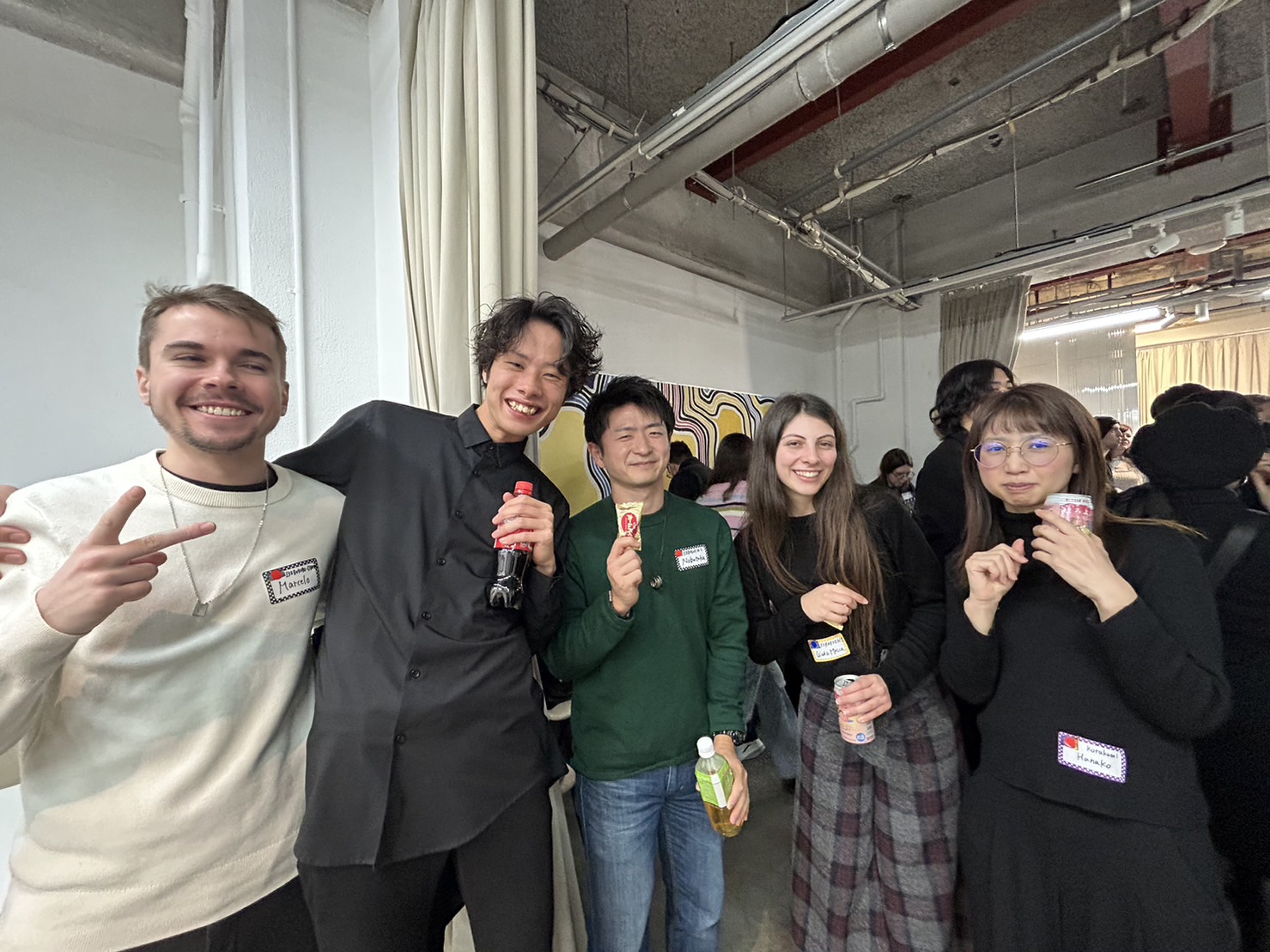
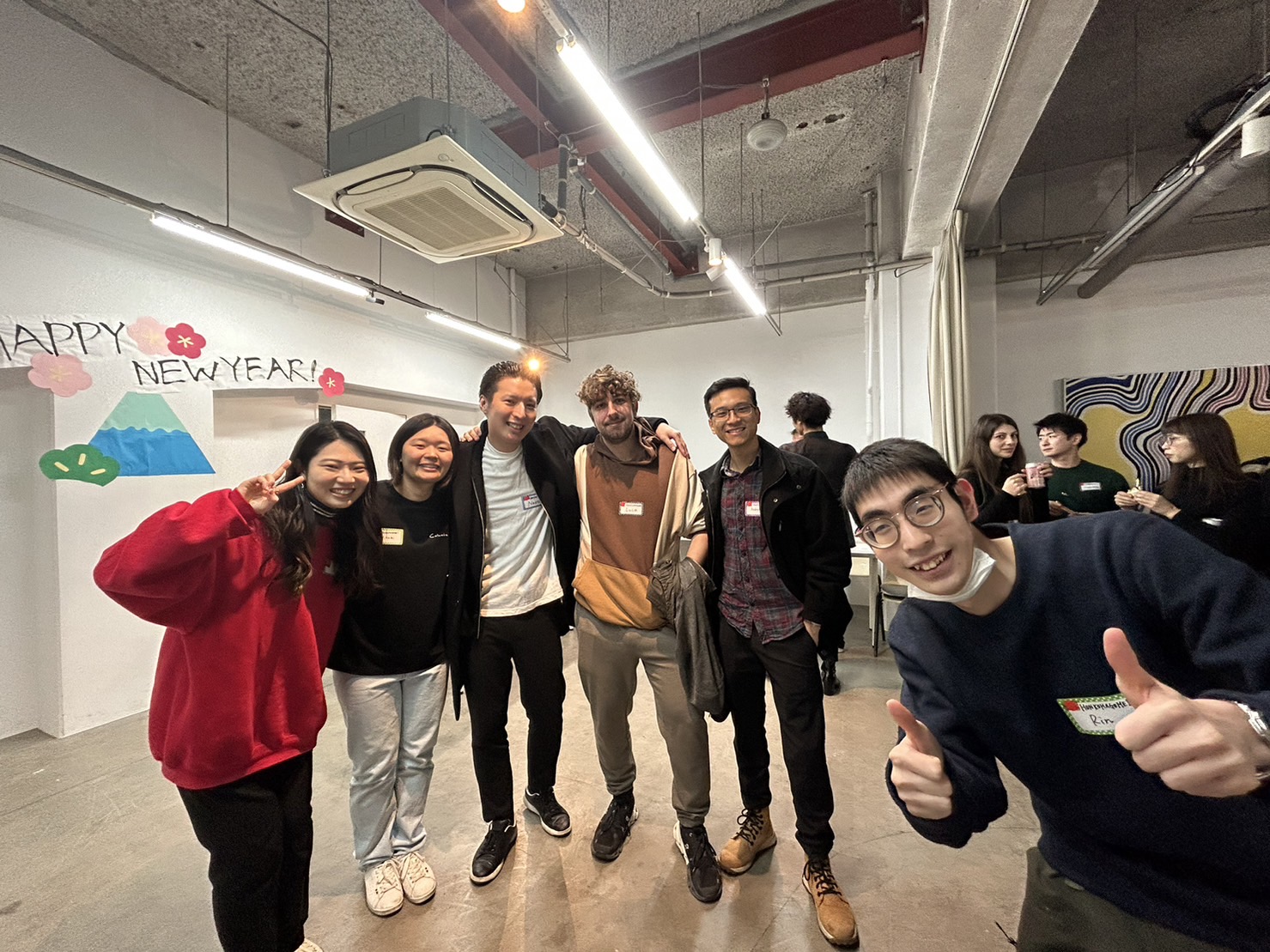
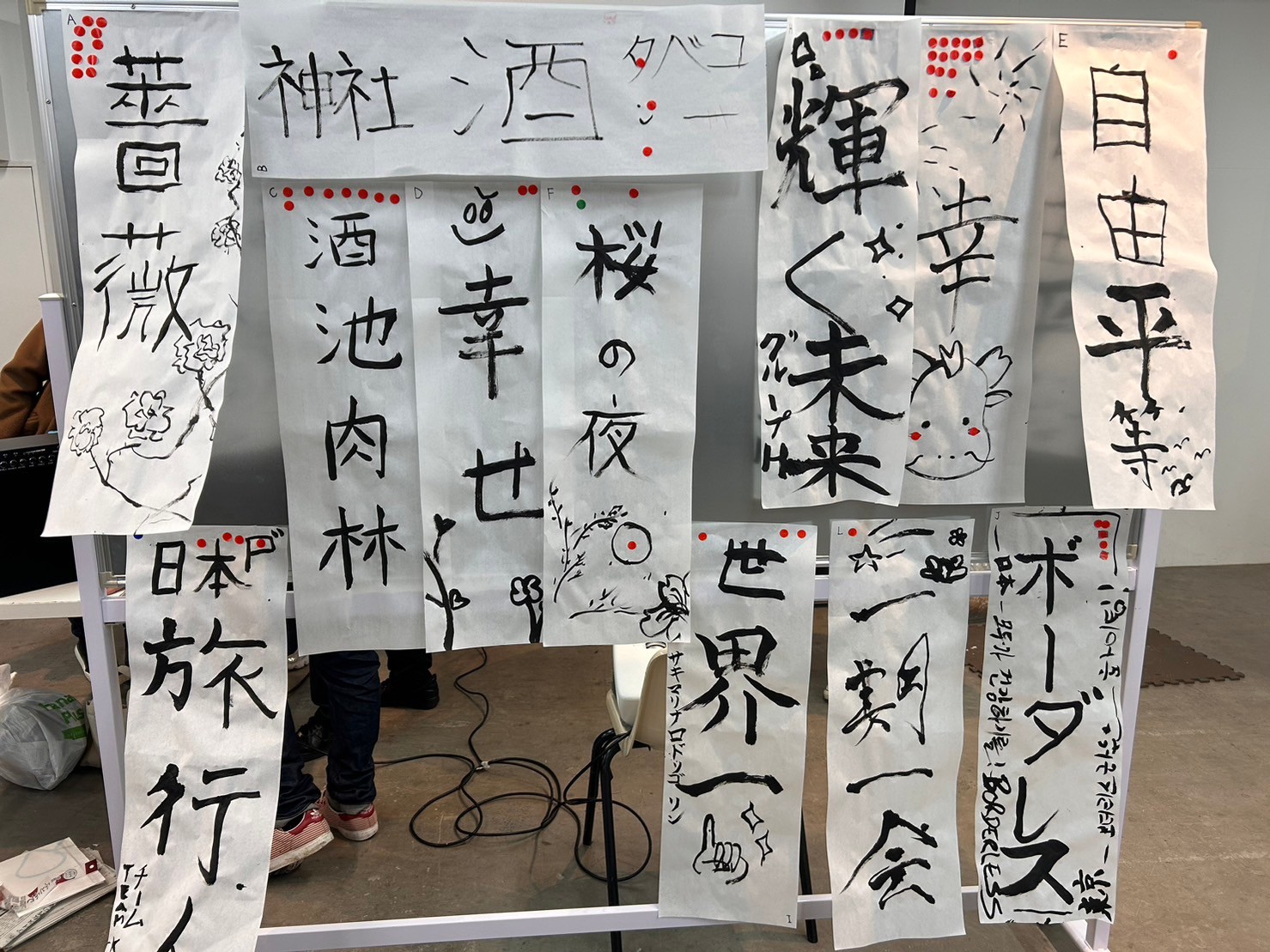
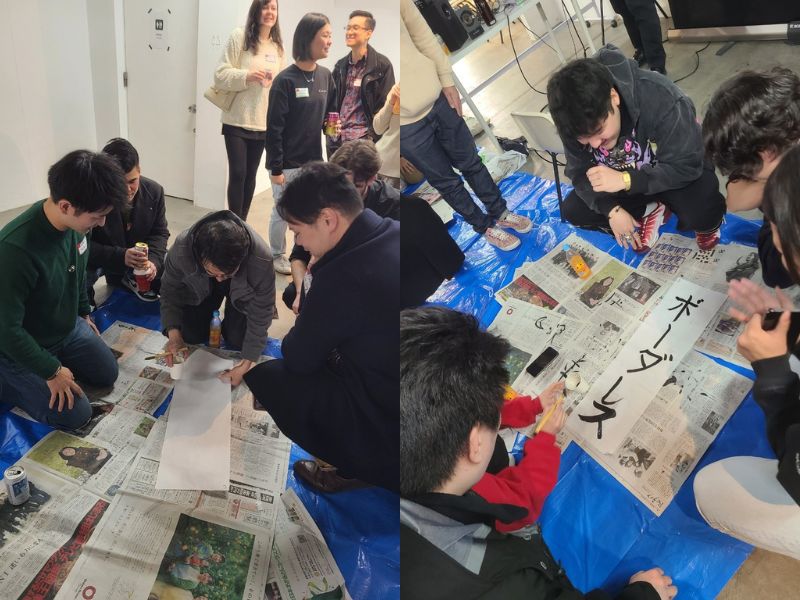
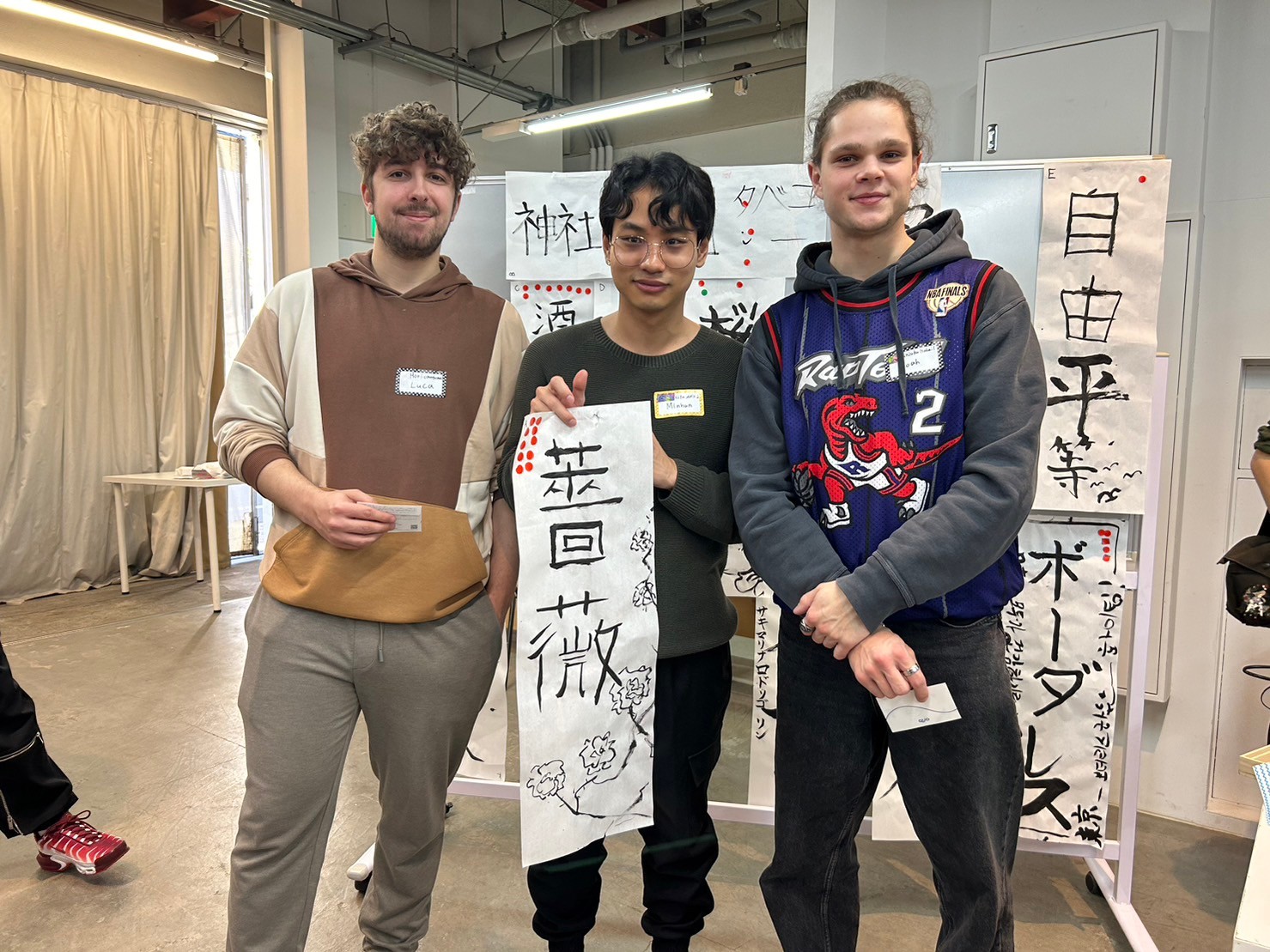
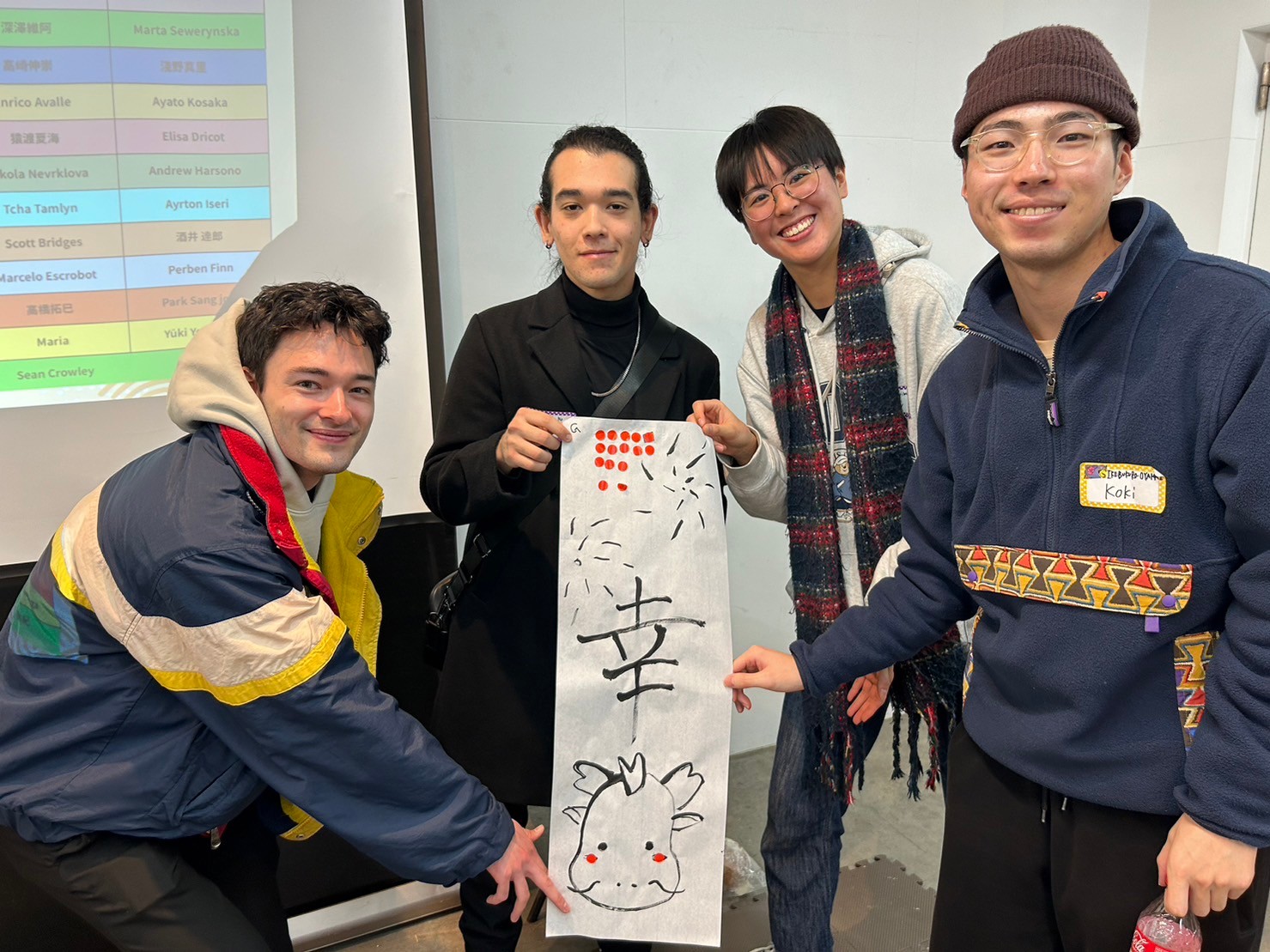
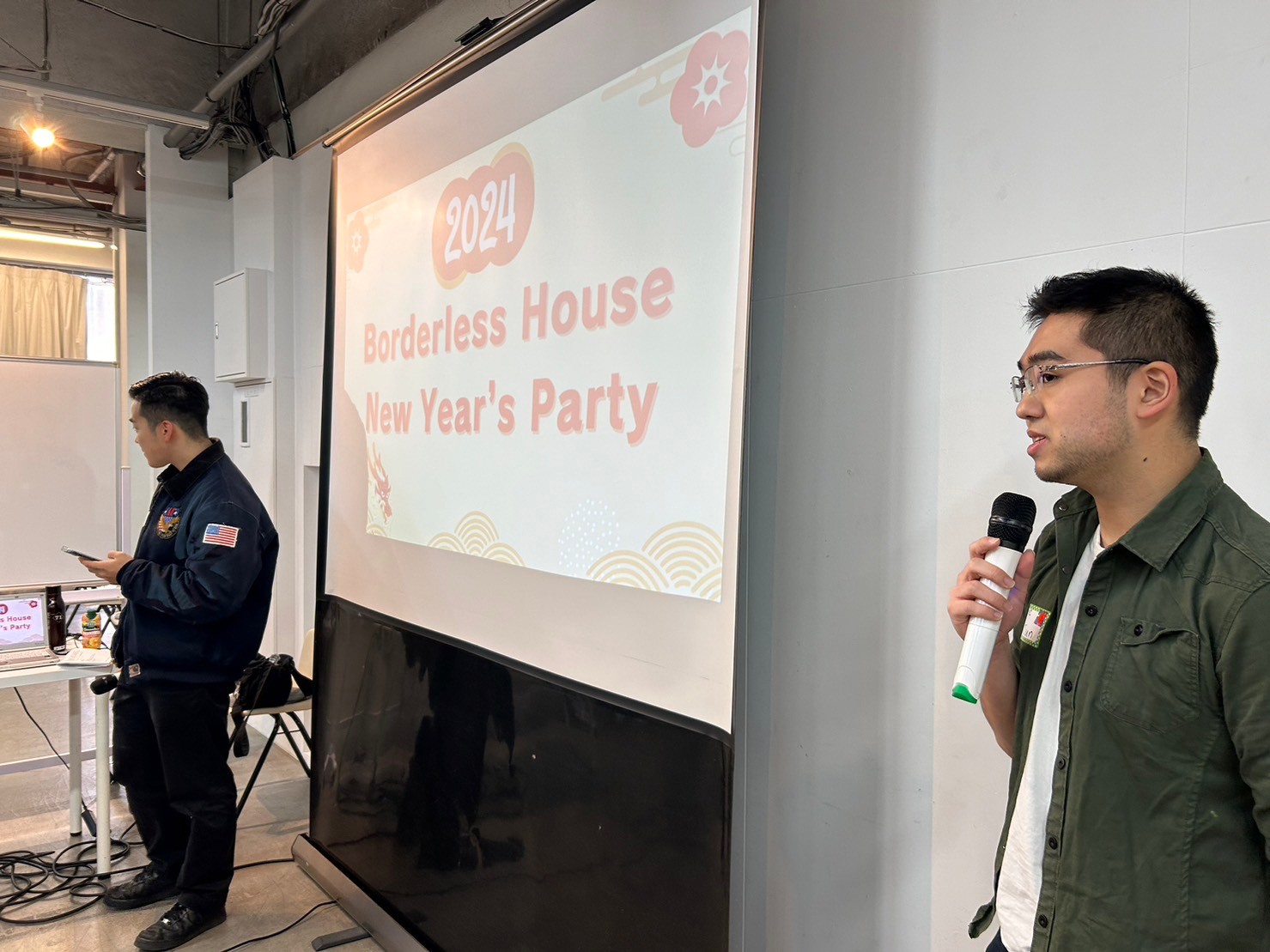
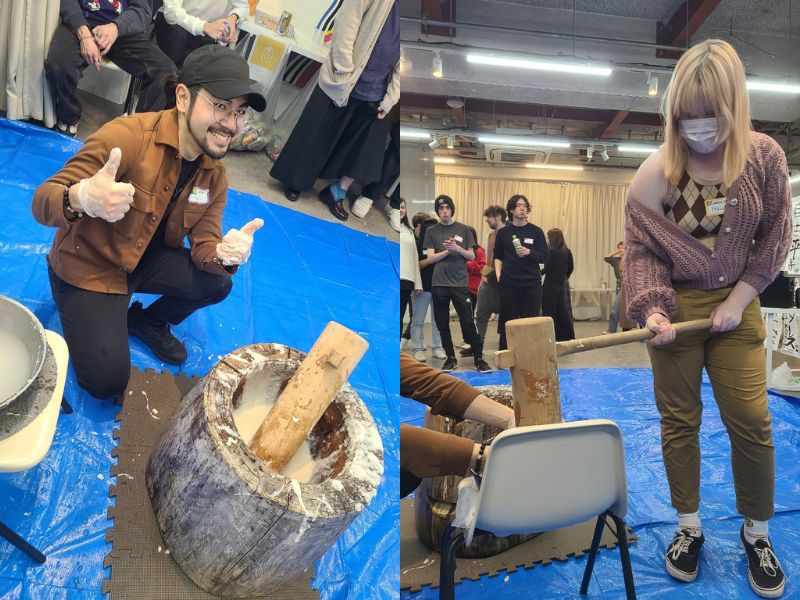
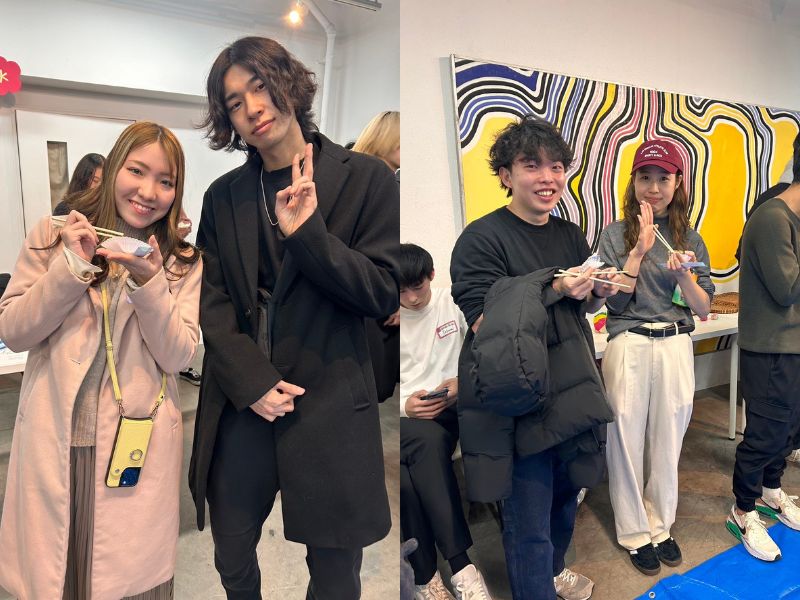
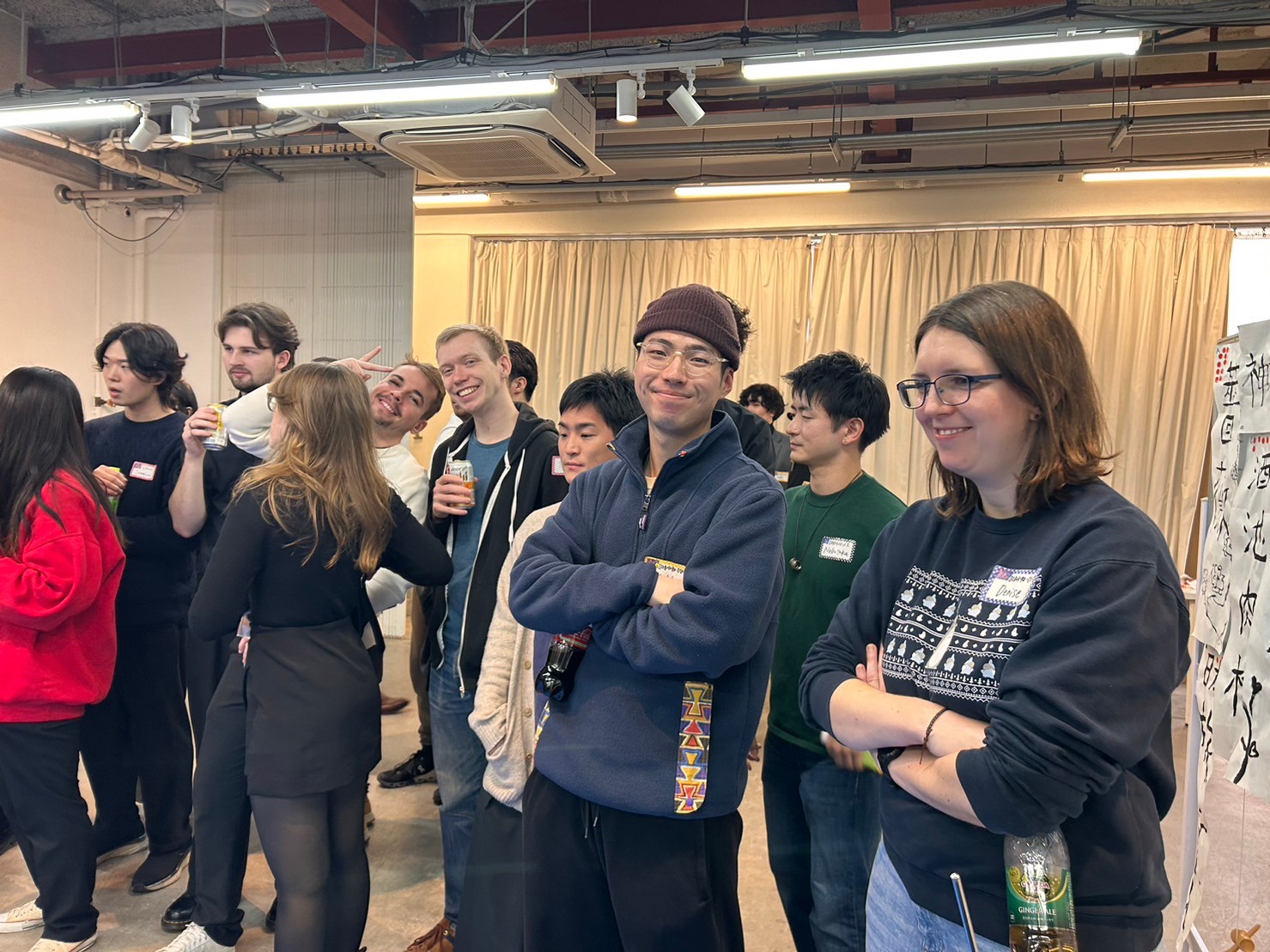
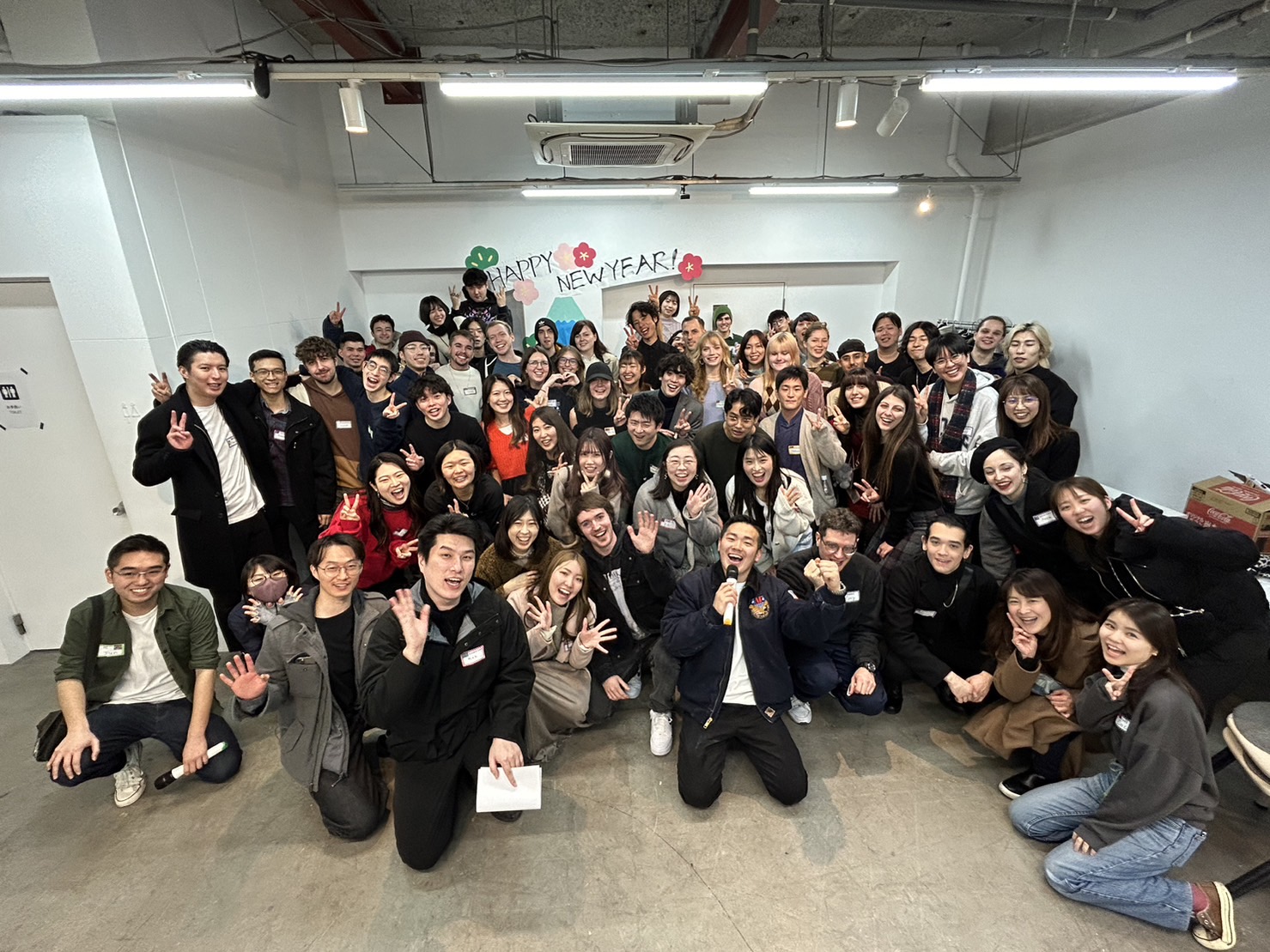


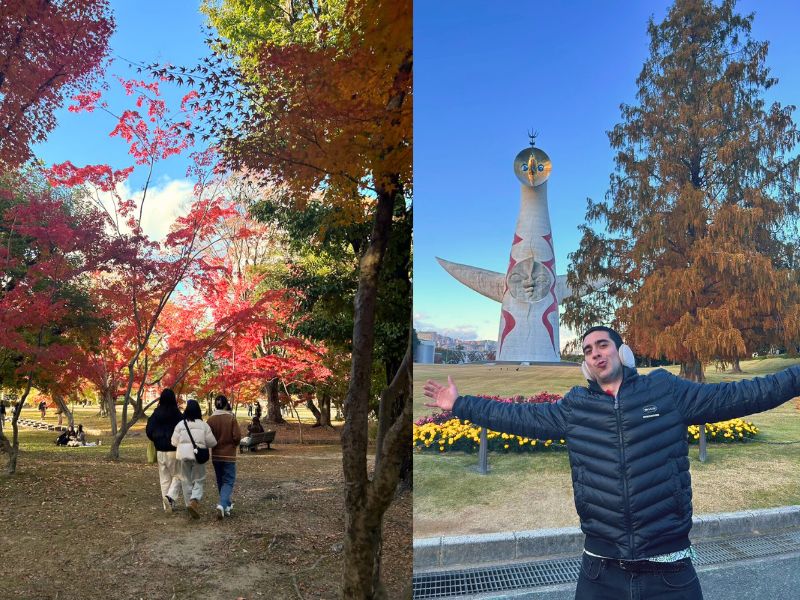
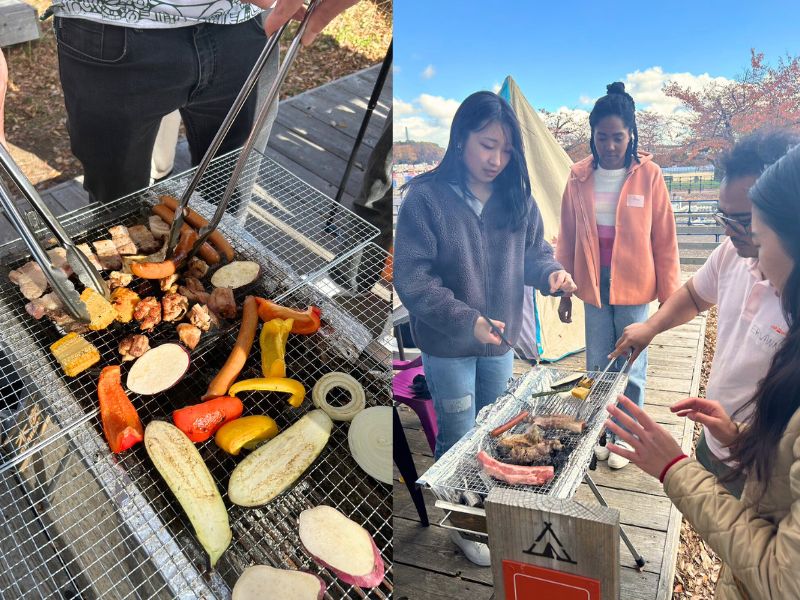 At the BBQ, while we were eating, everyone talked about what life is like in their own share houses.
At the BBQ, while we were eating, everyone talked about what life is like in their own share houses. After we finished the BBQ, we all went for a walk in the beautiful, green park to enjoy the autumn scenery.
After we finished the BBQ, we all went for a walk in the beautiful, green park to enjoy the autumn scenery.